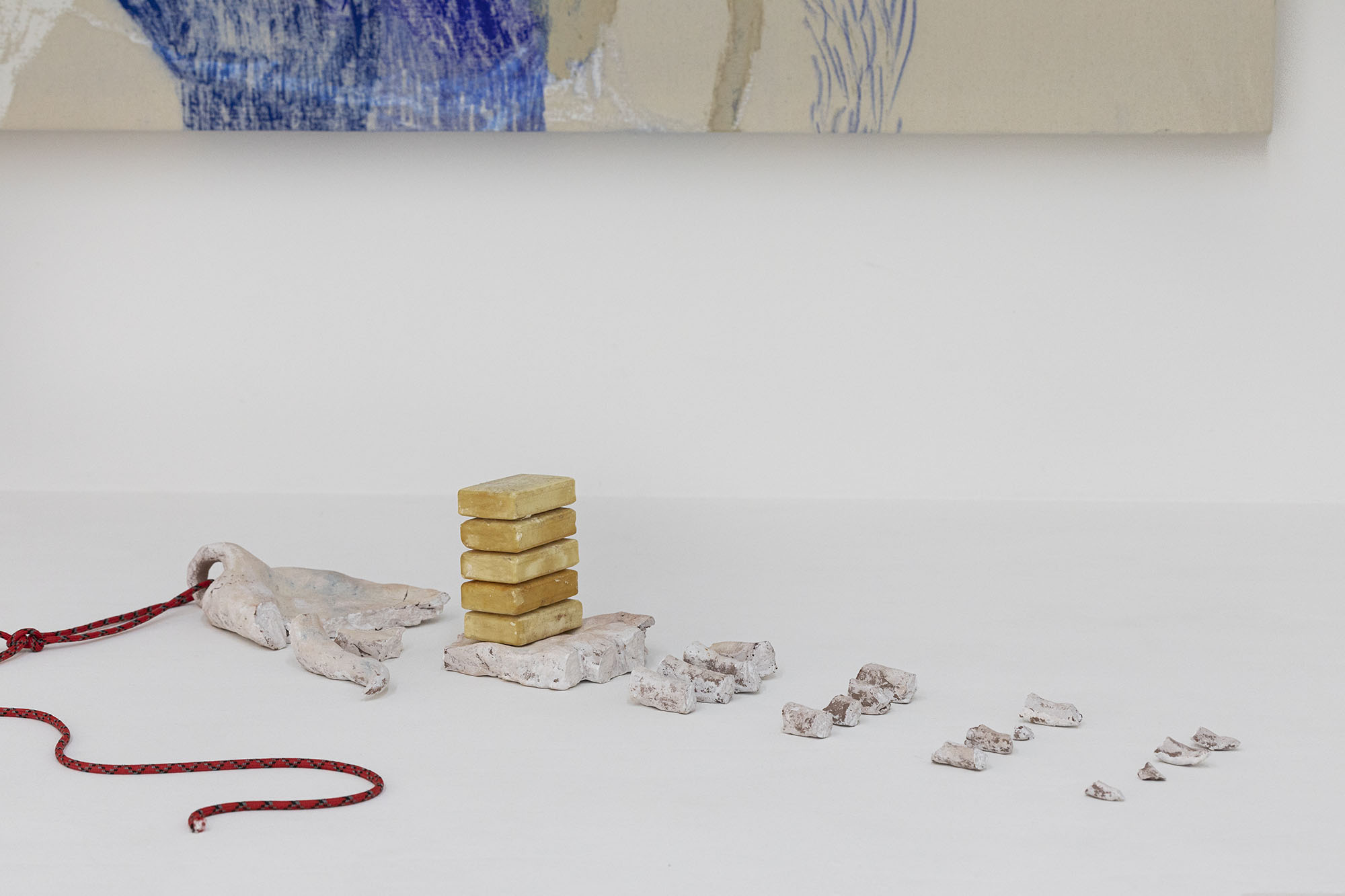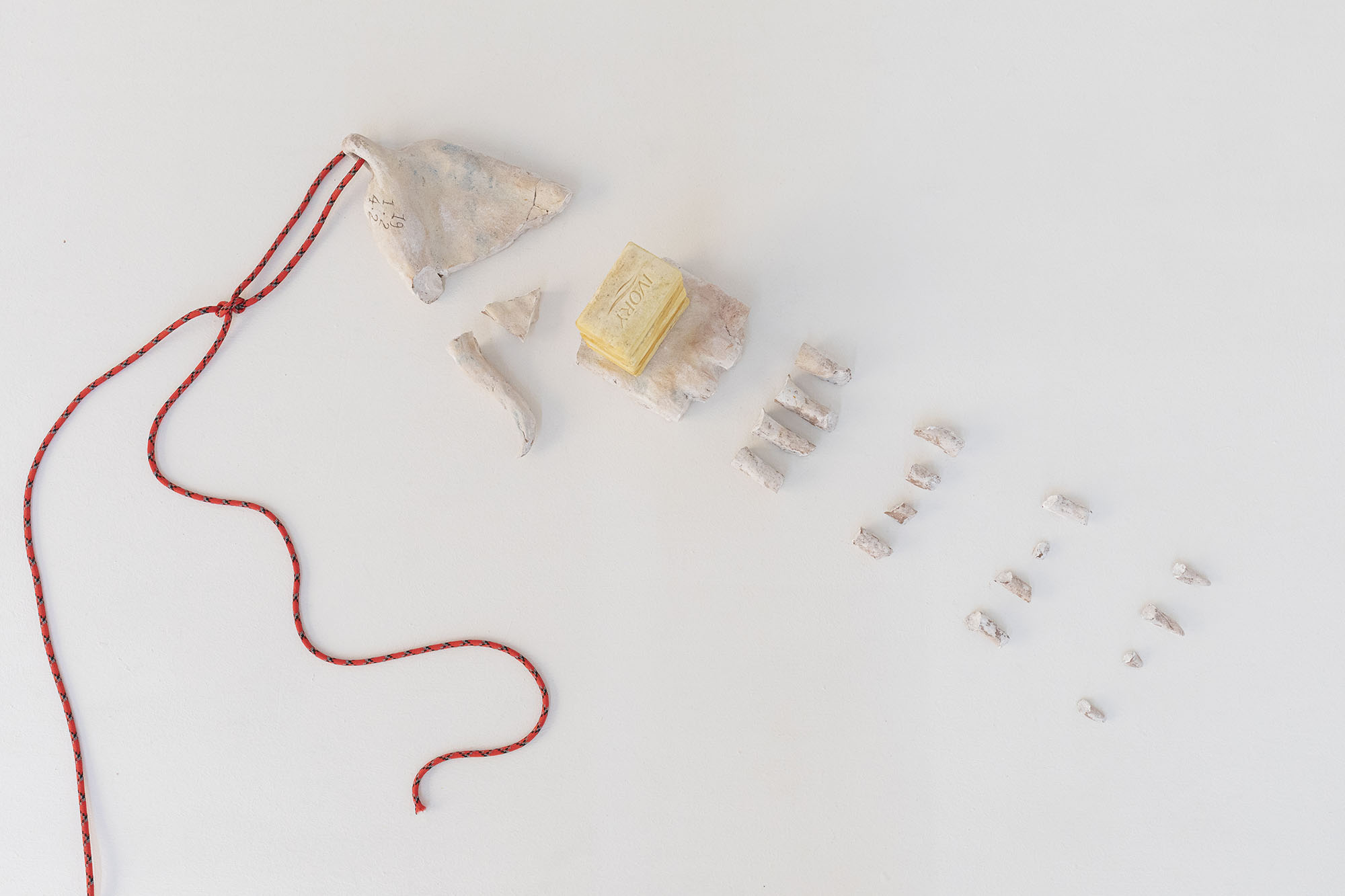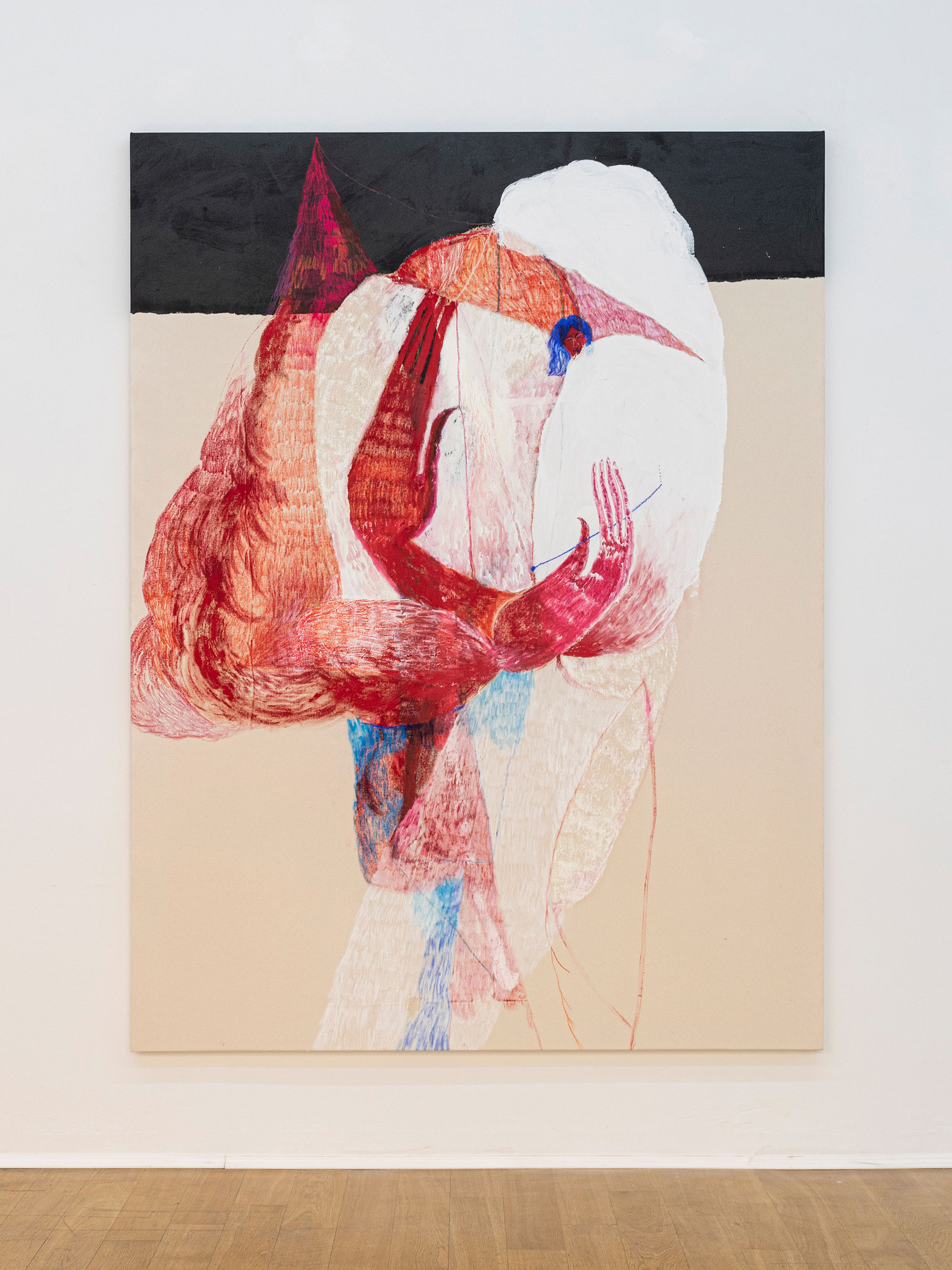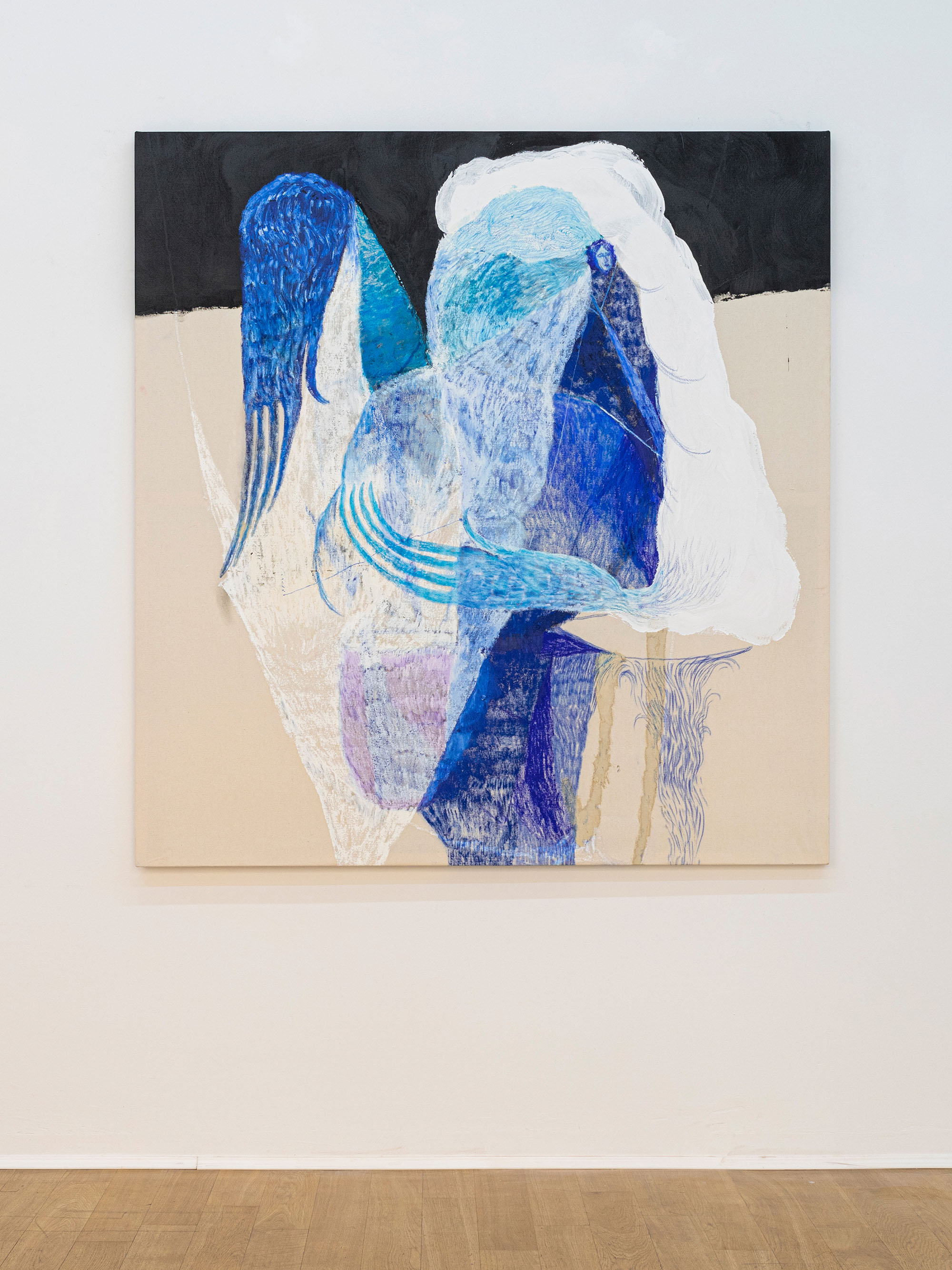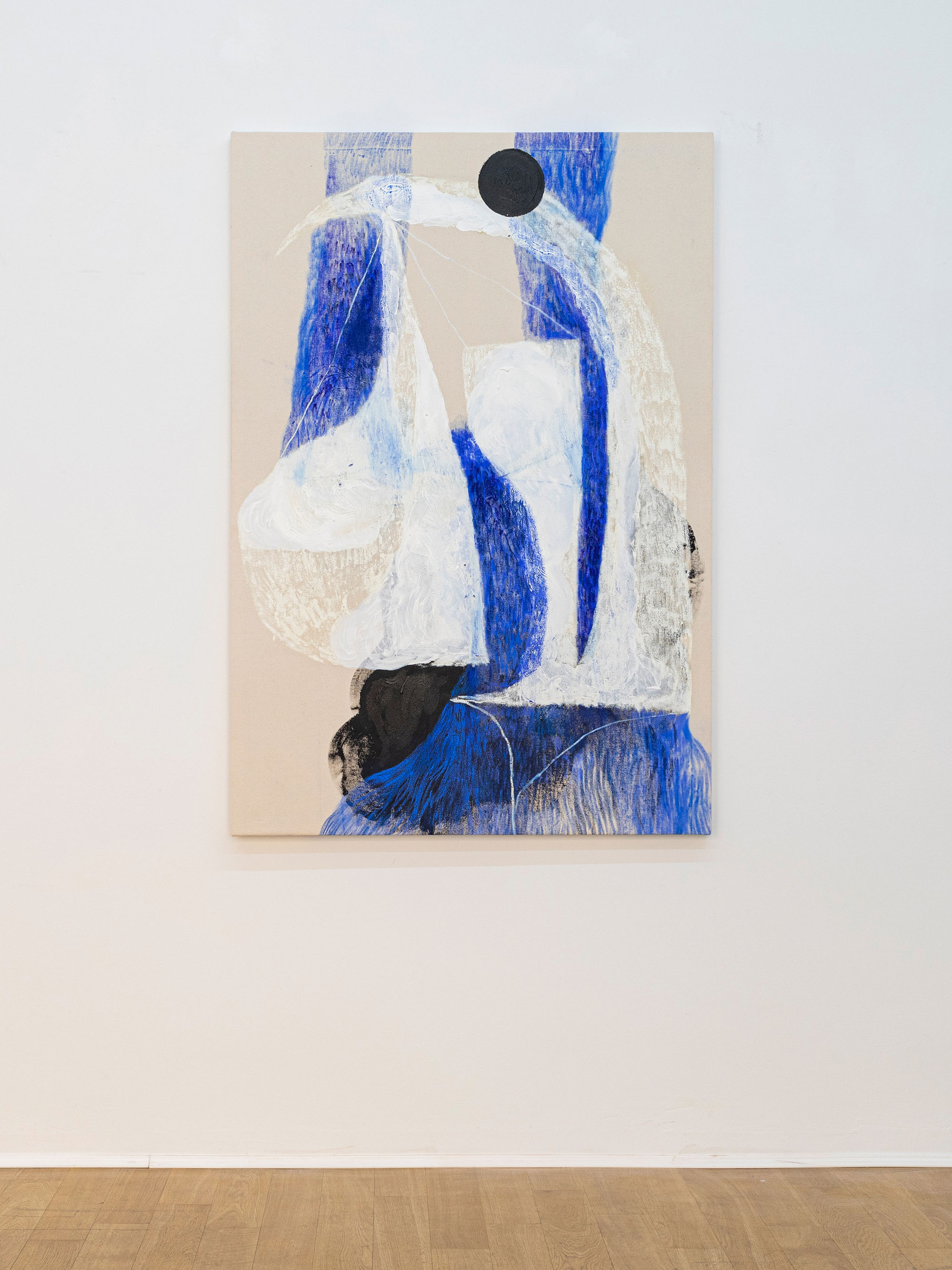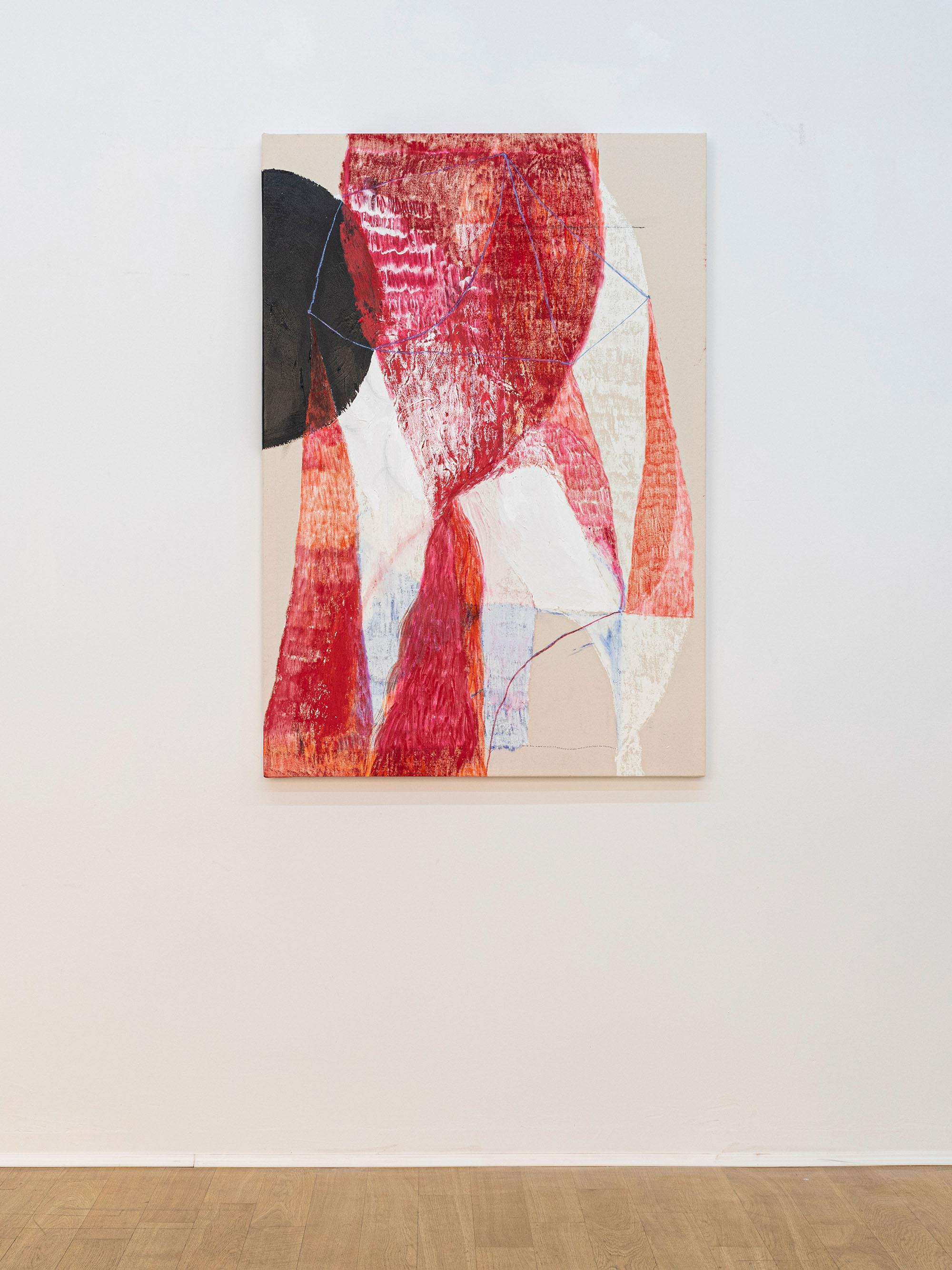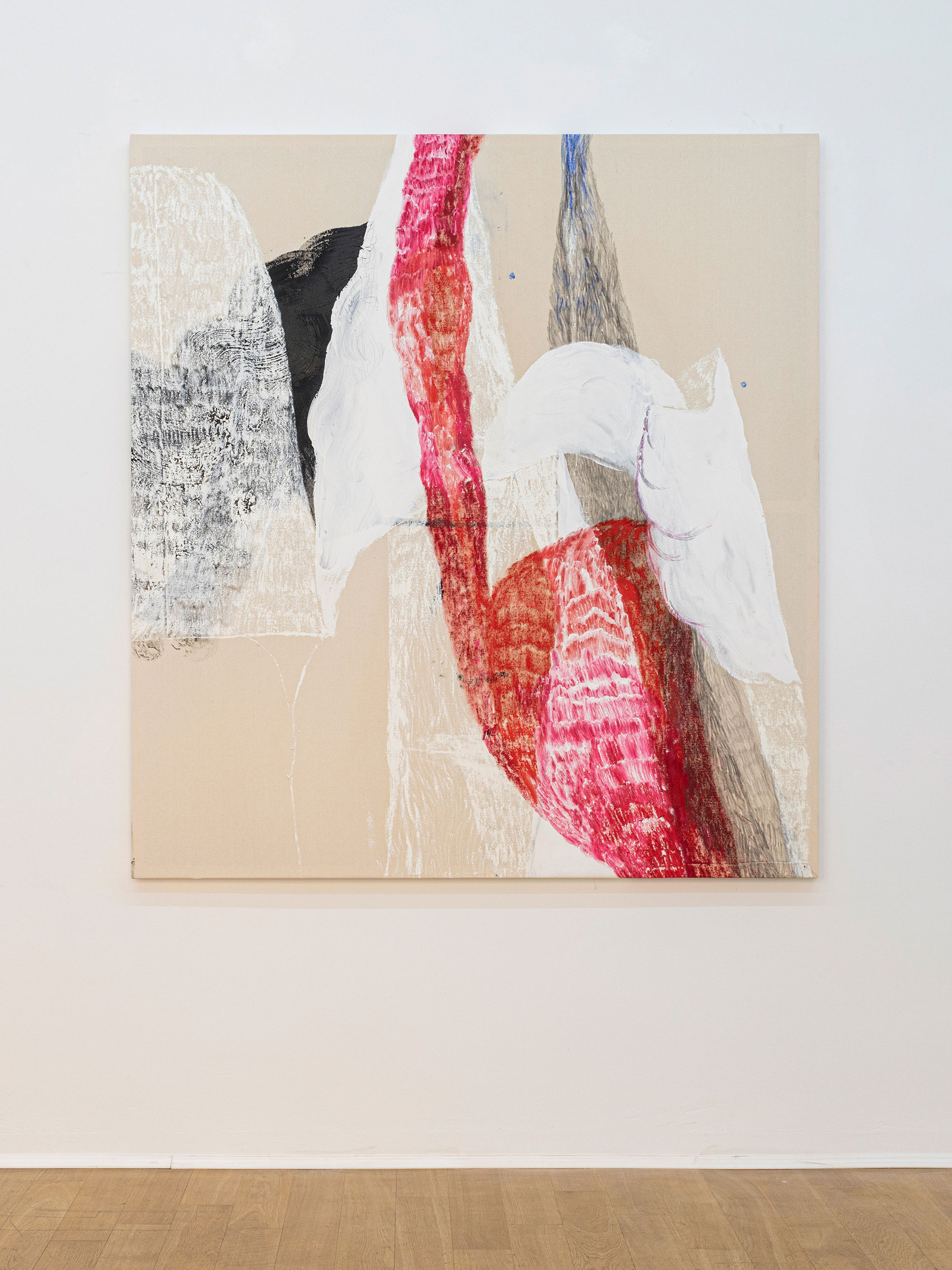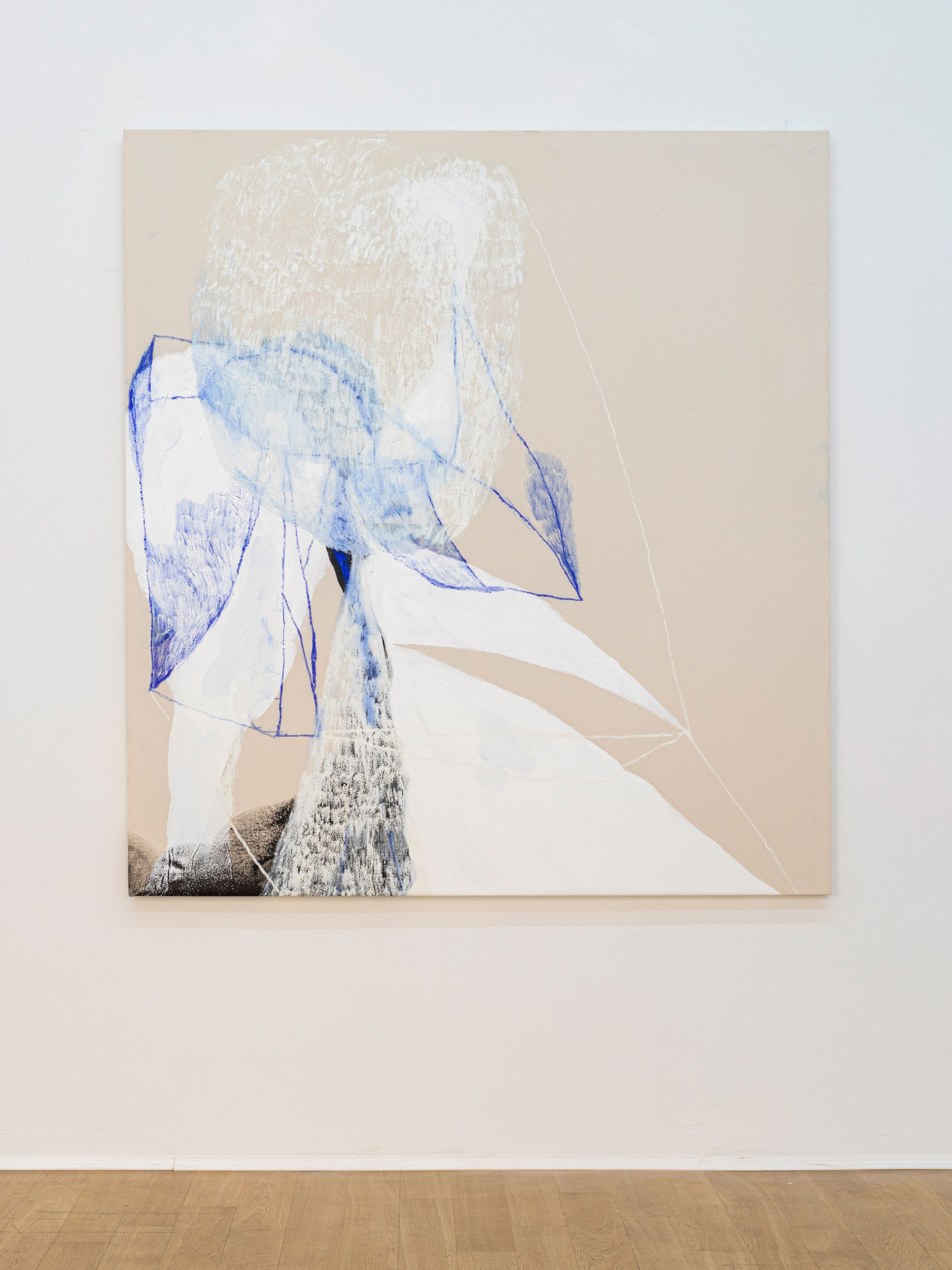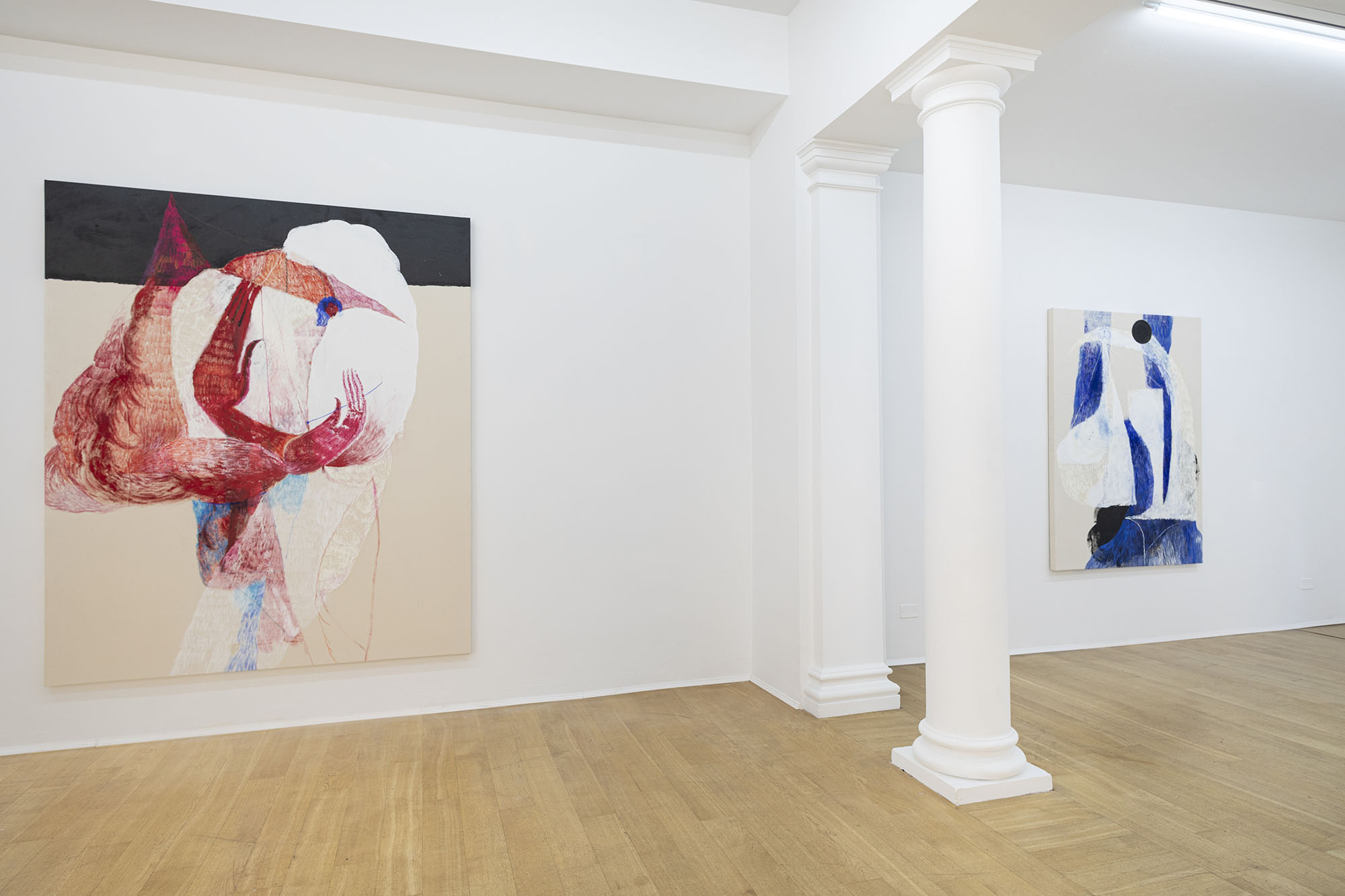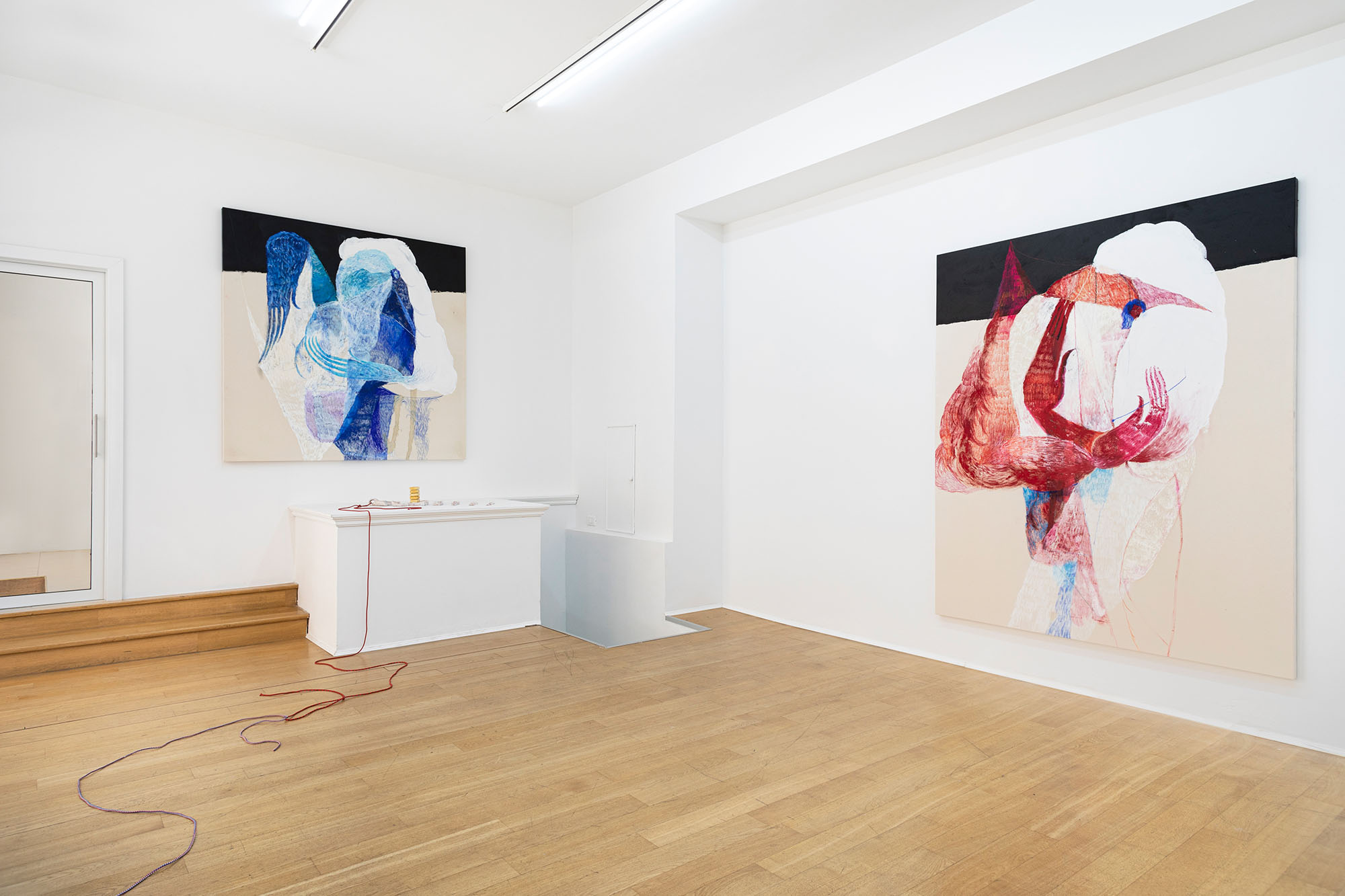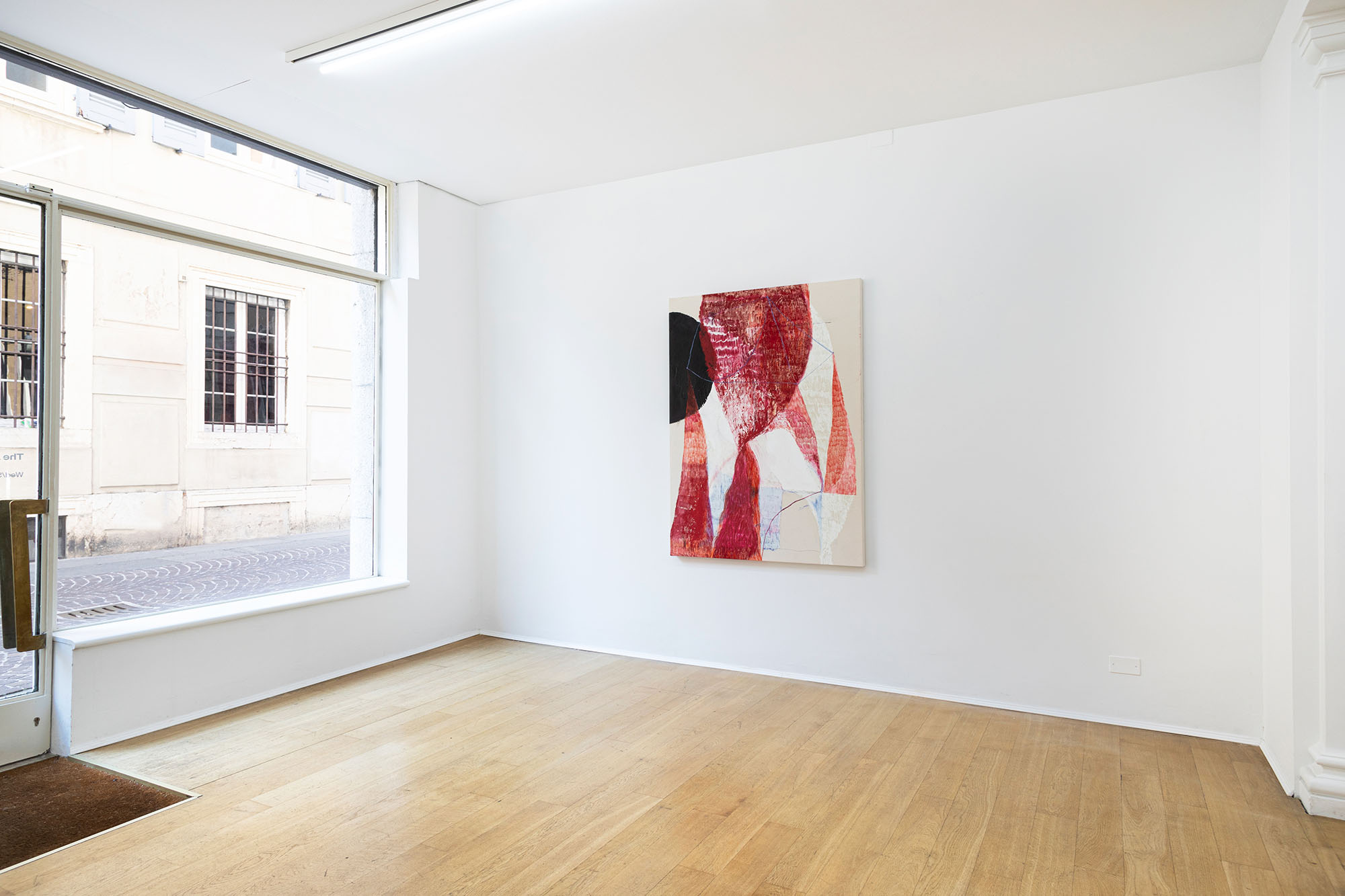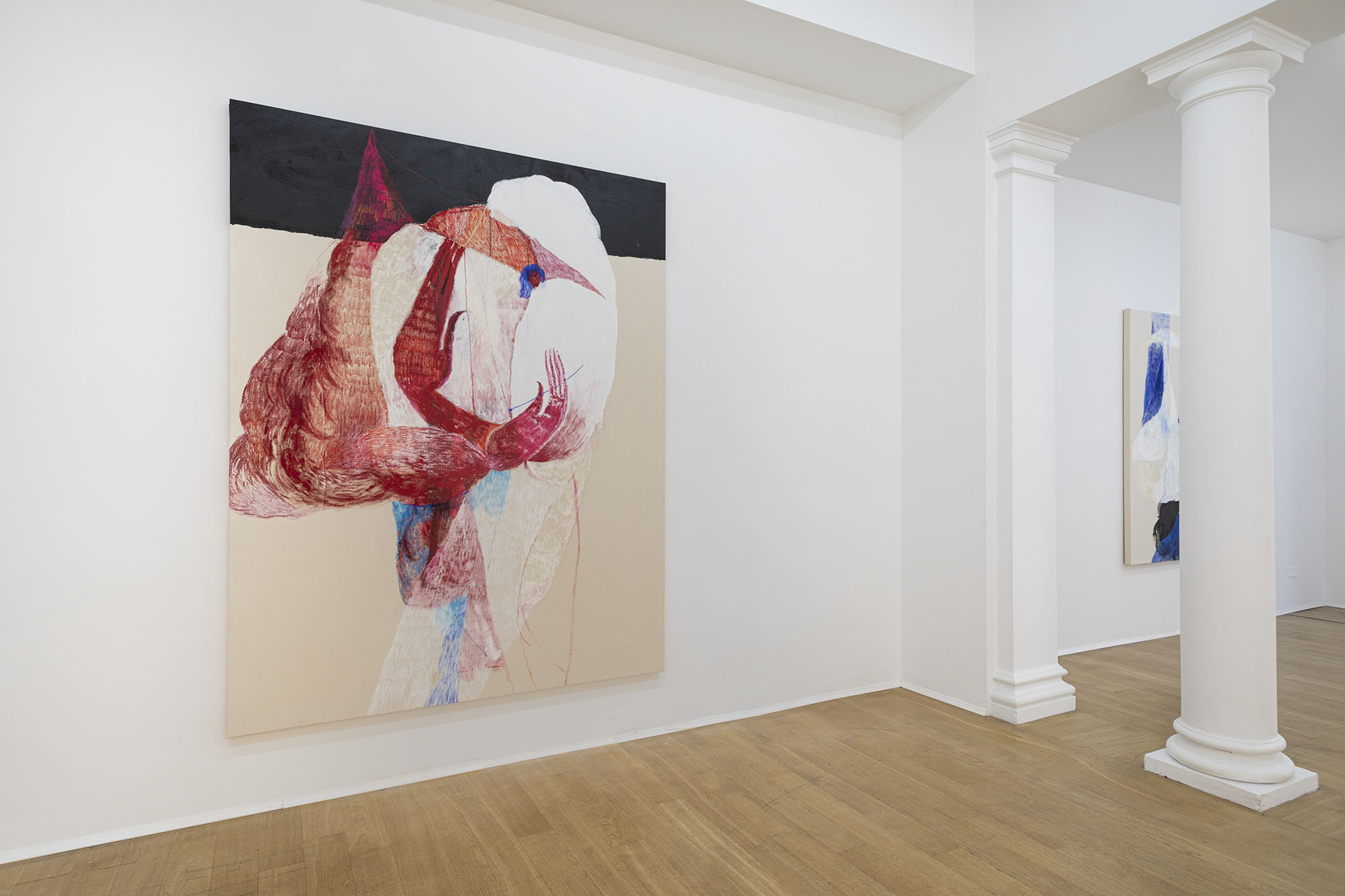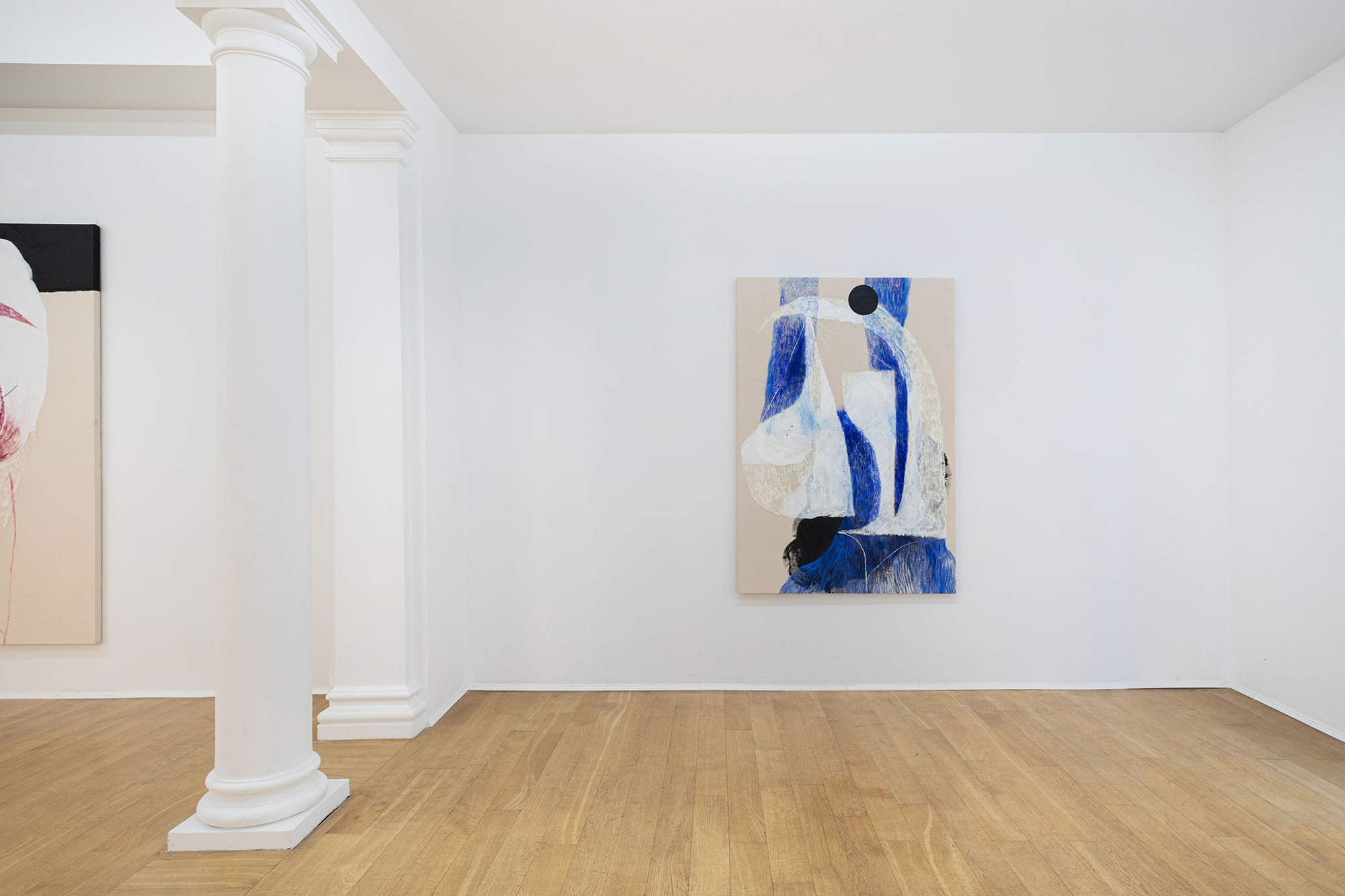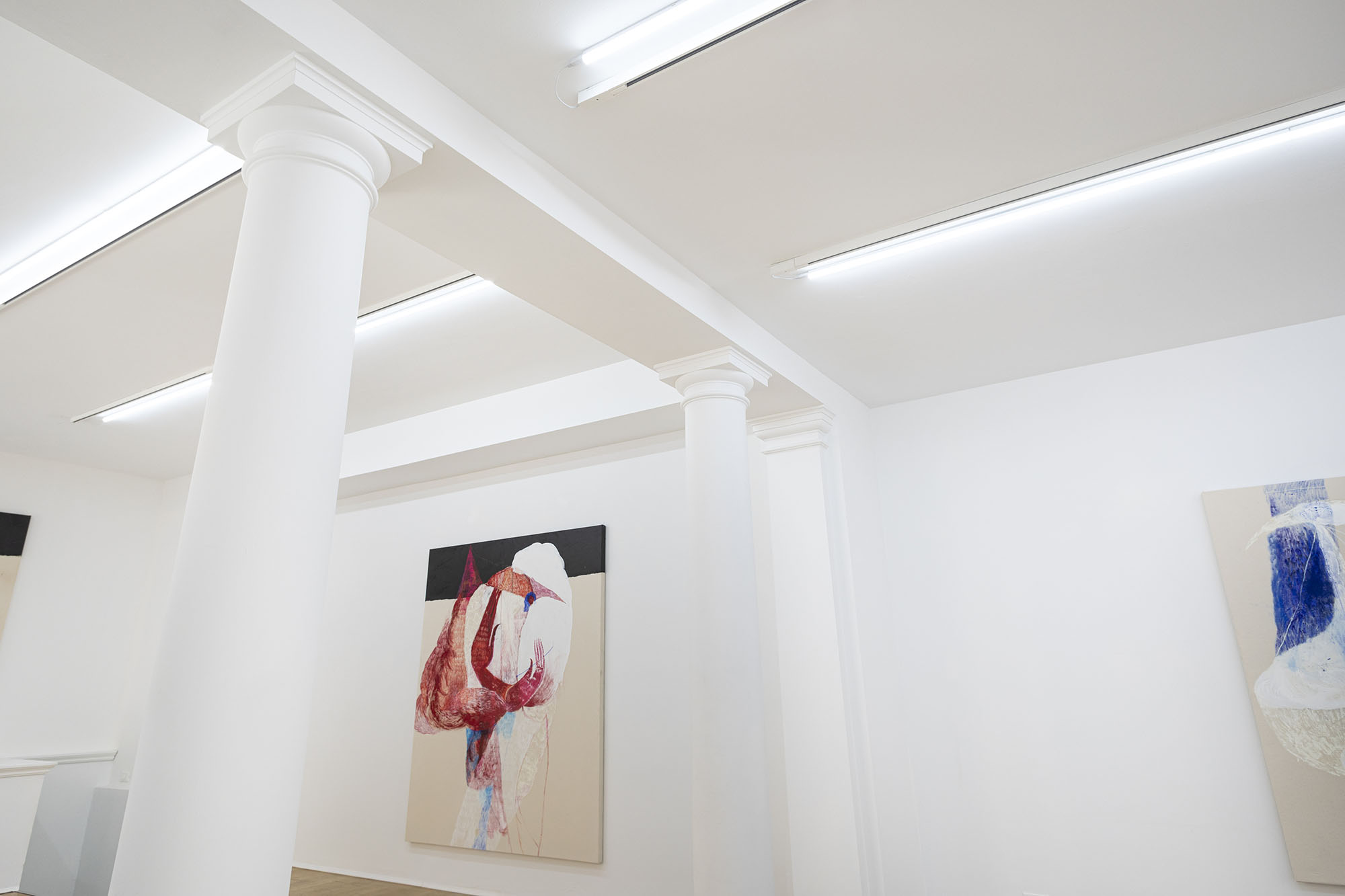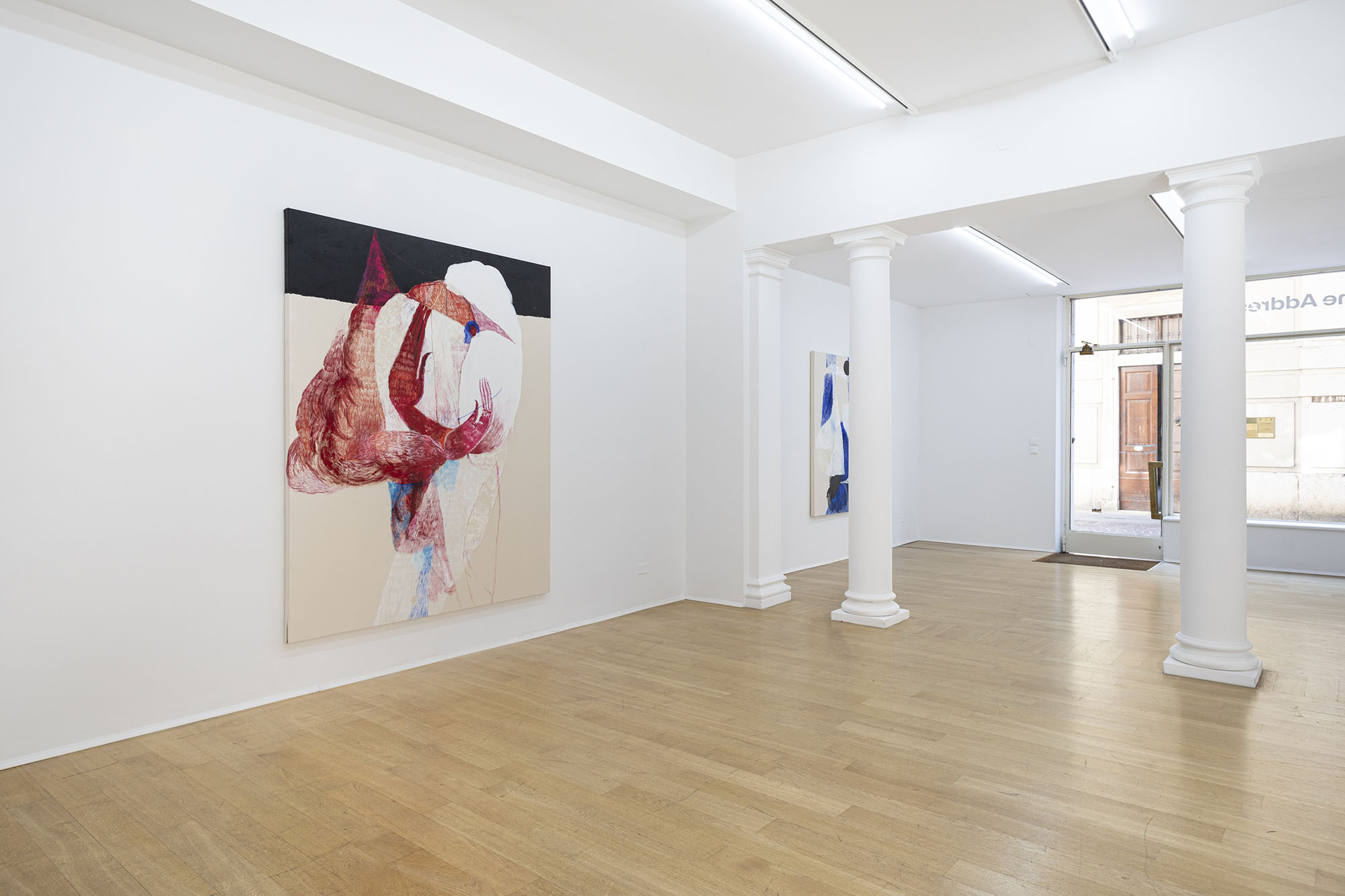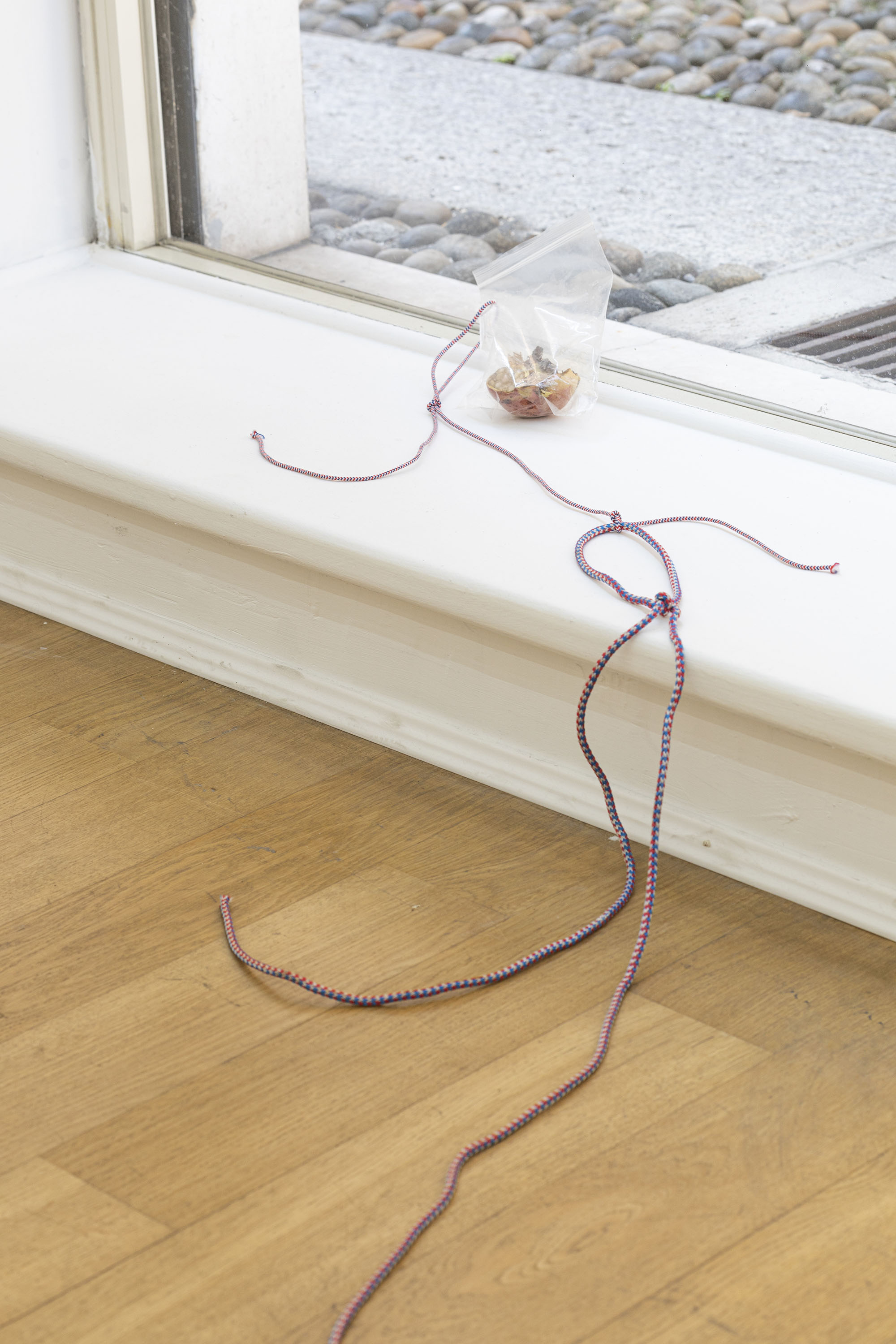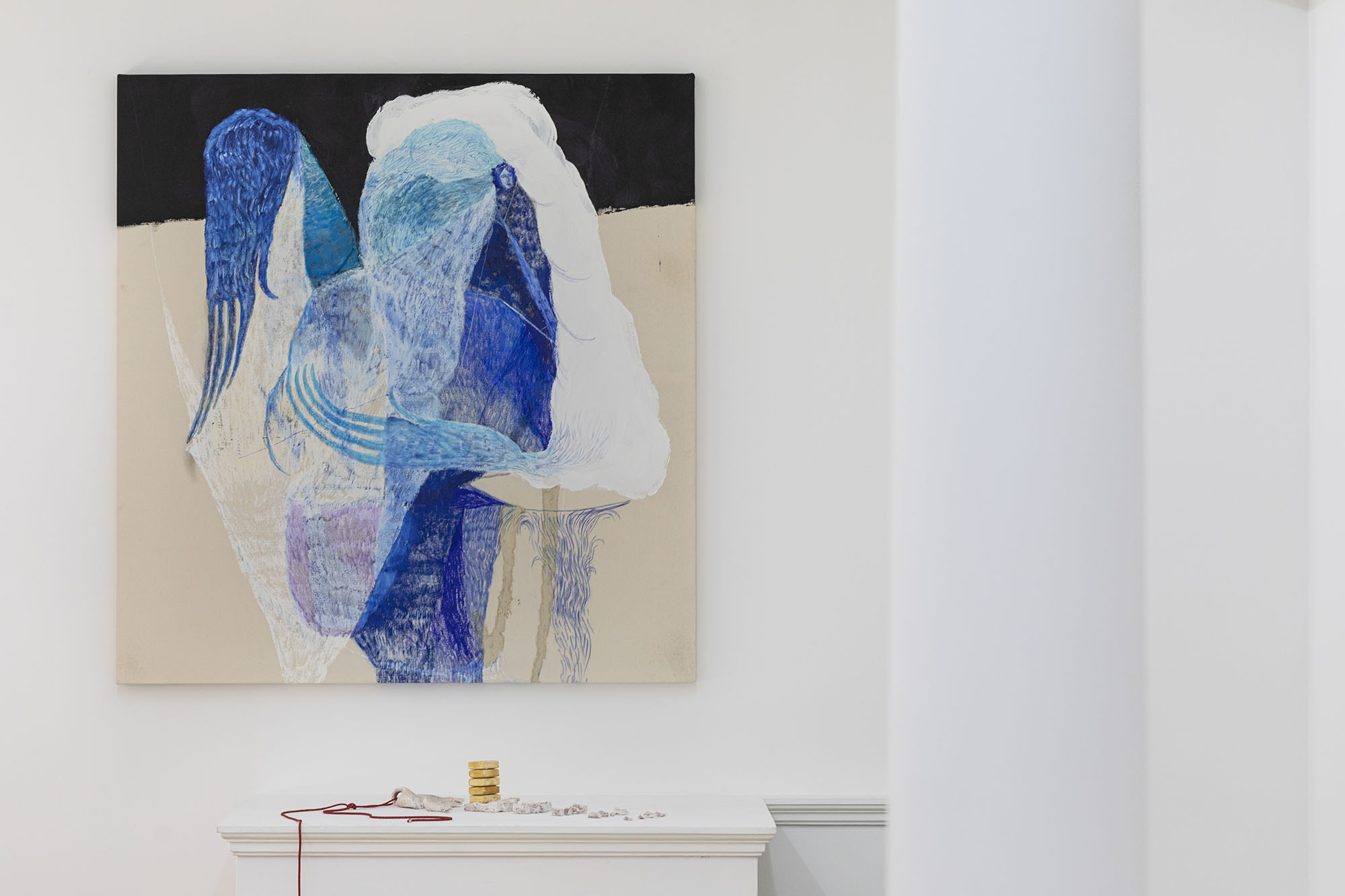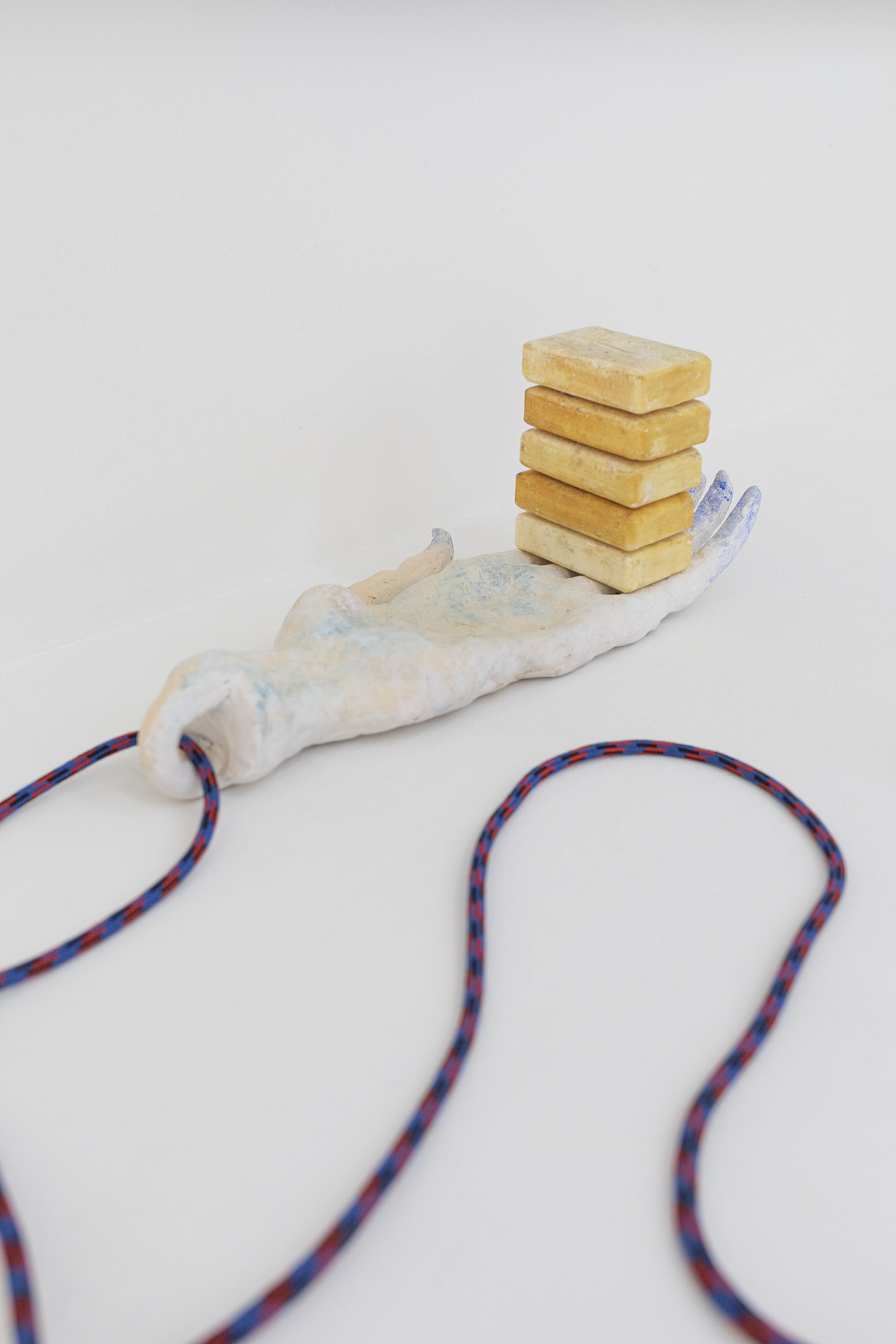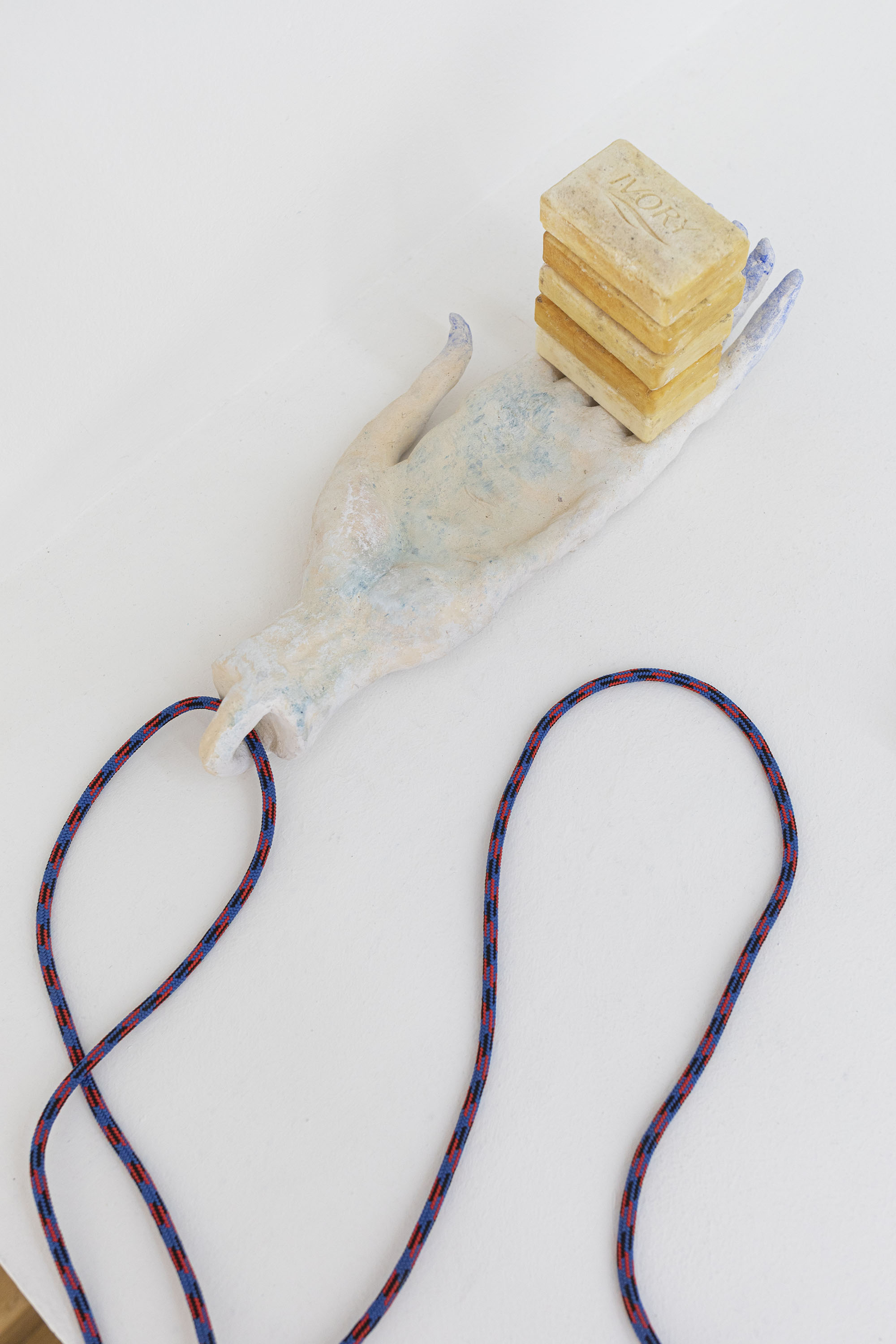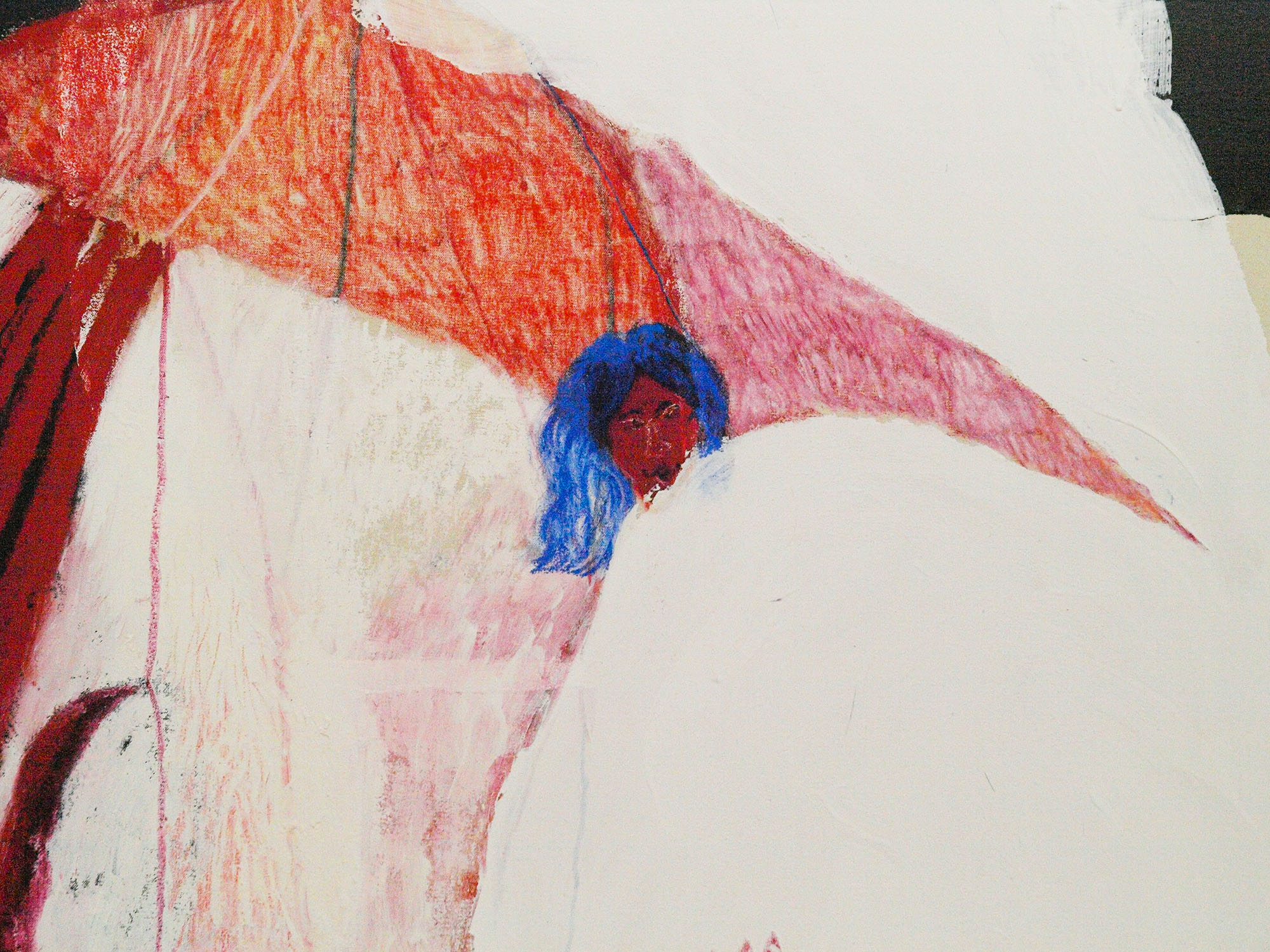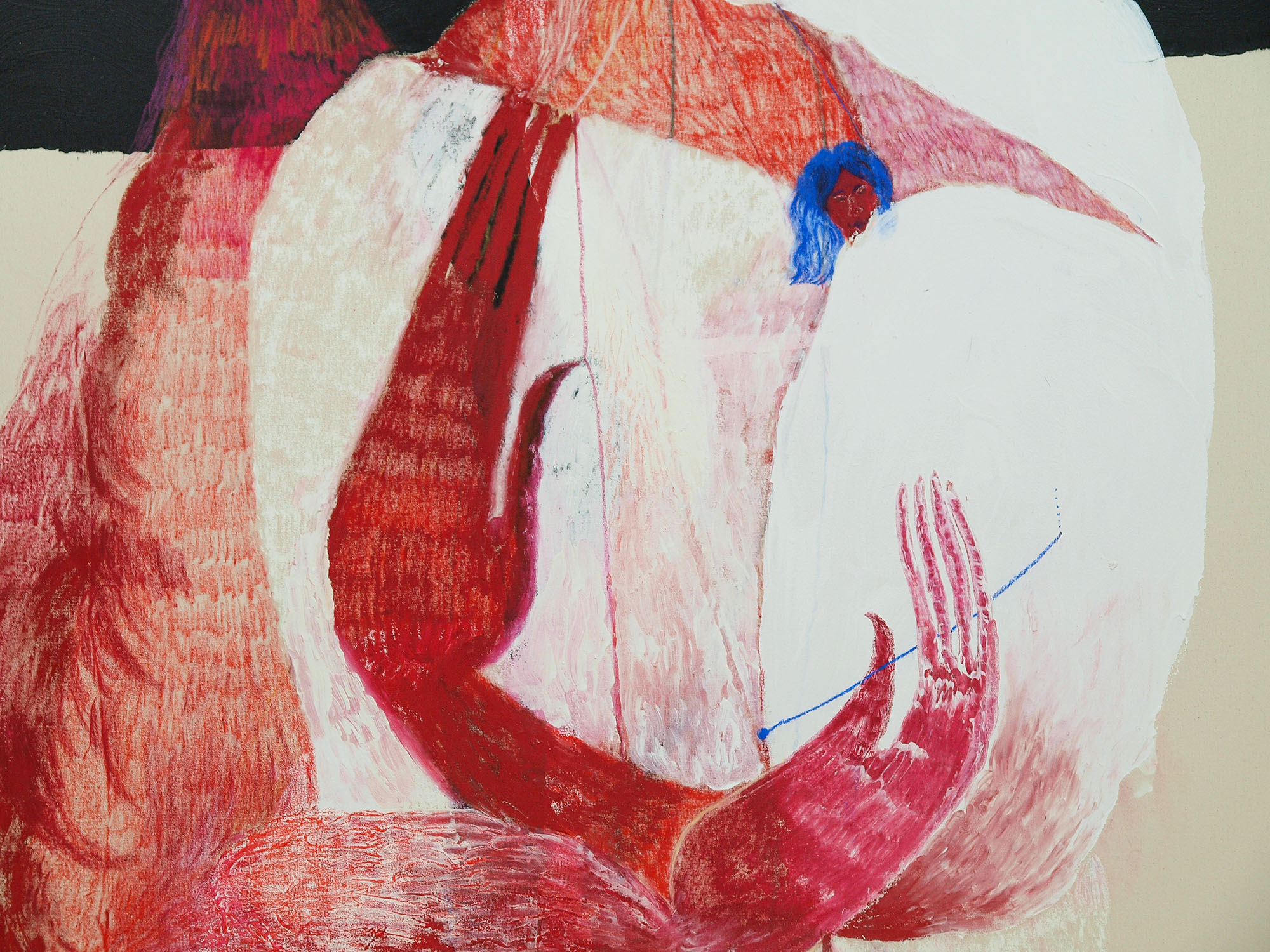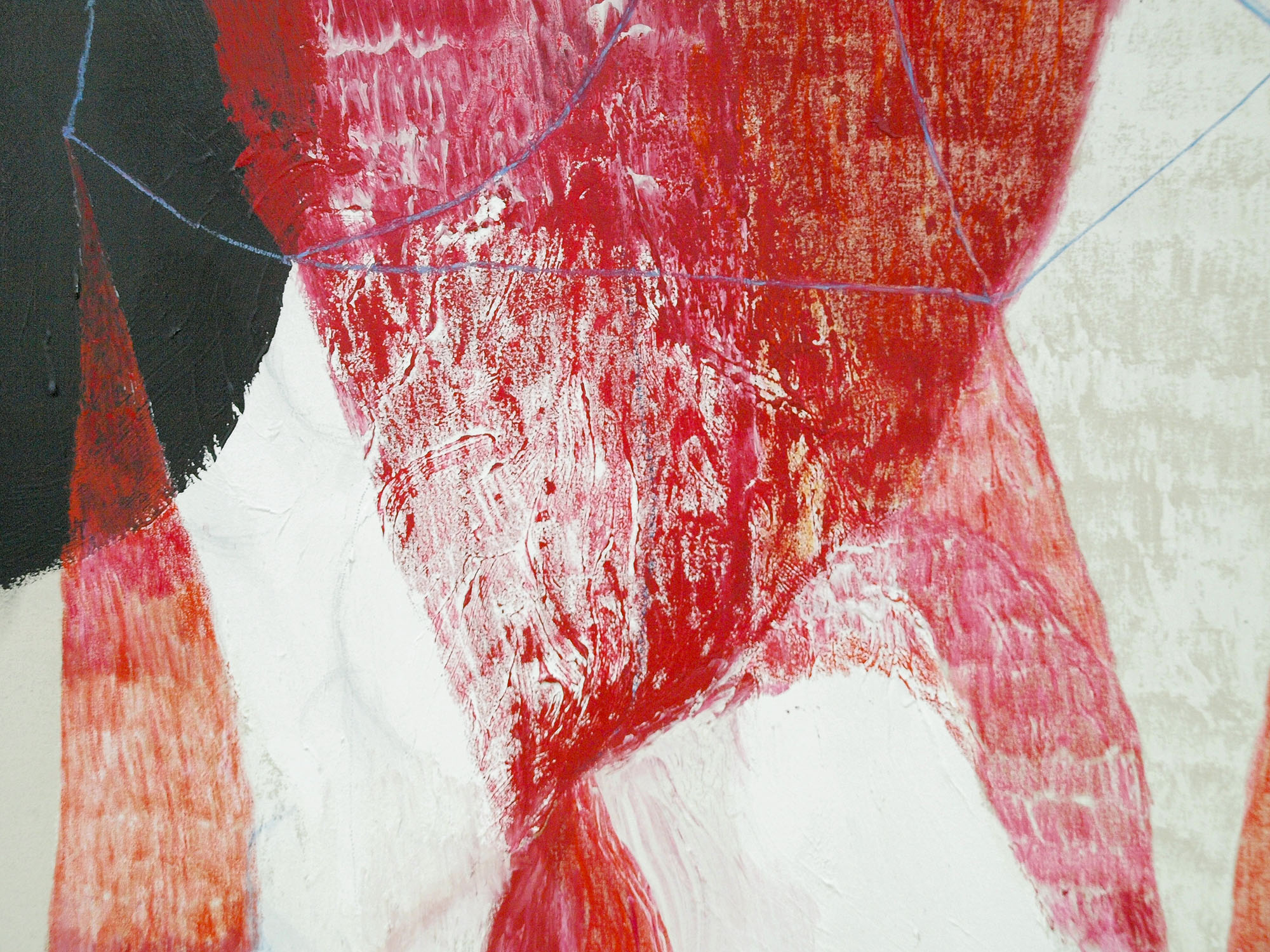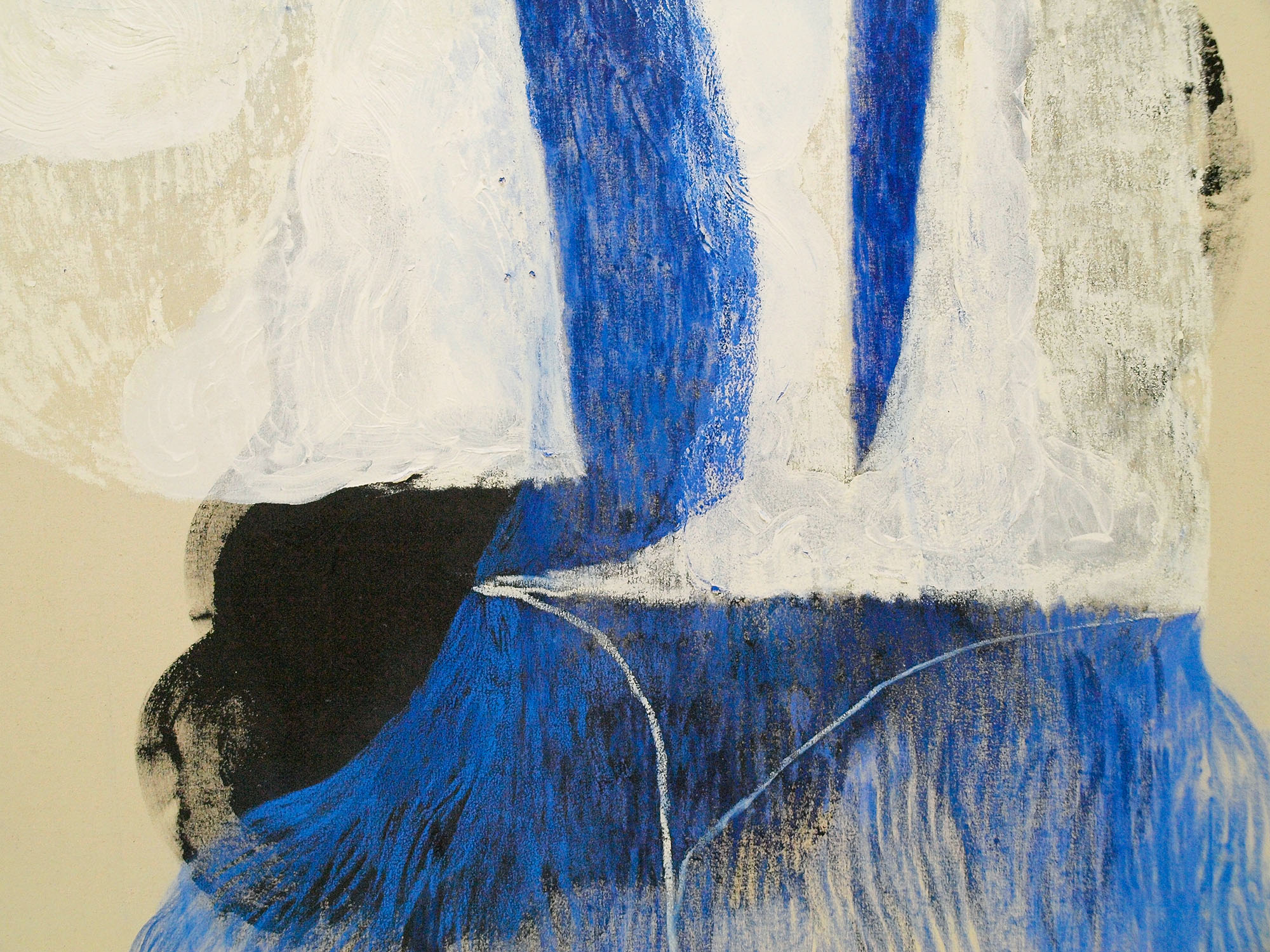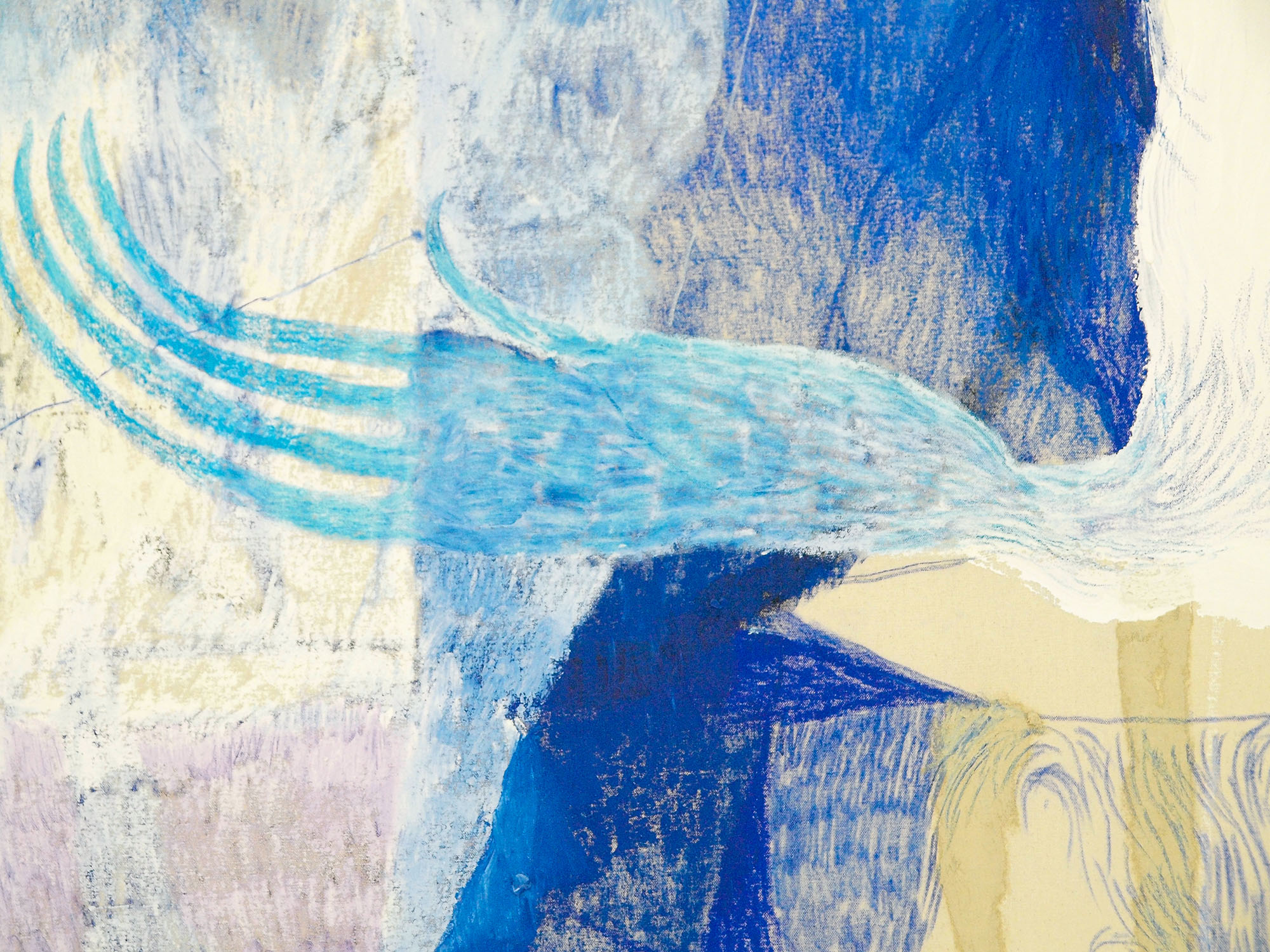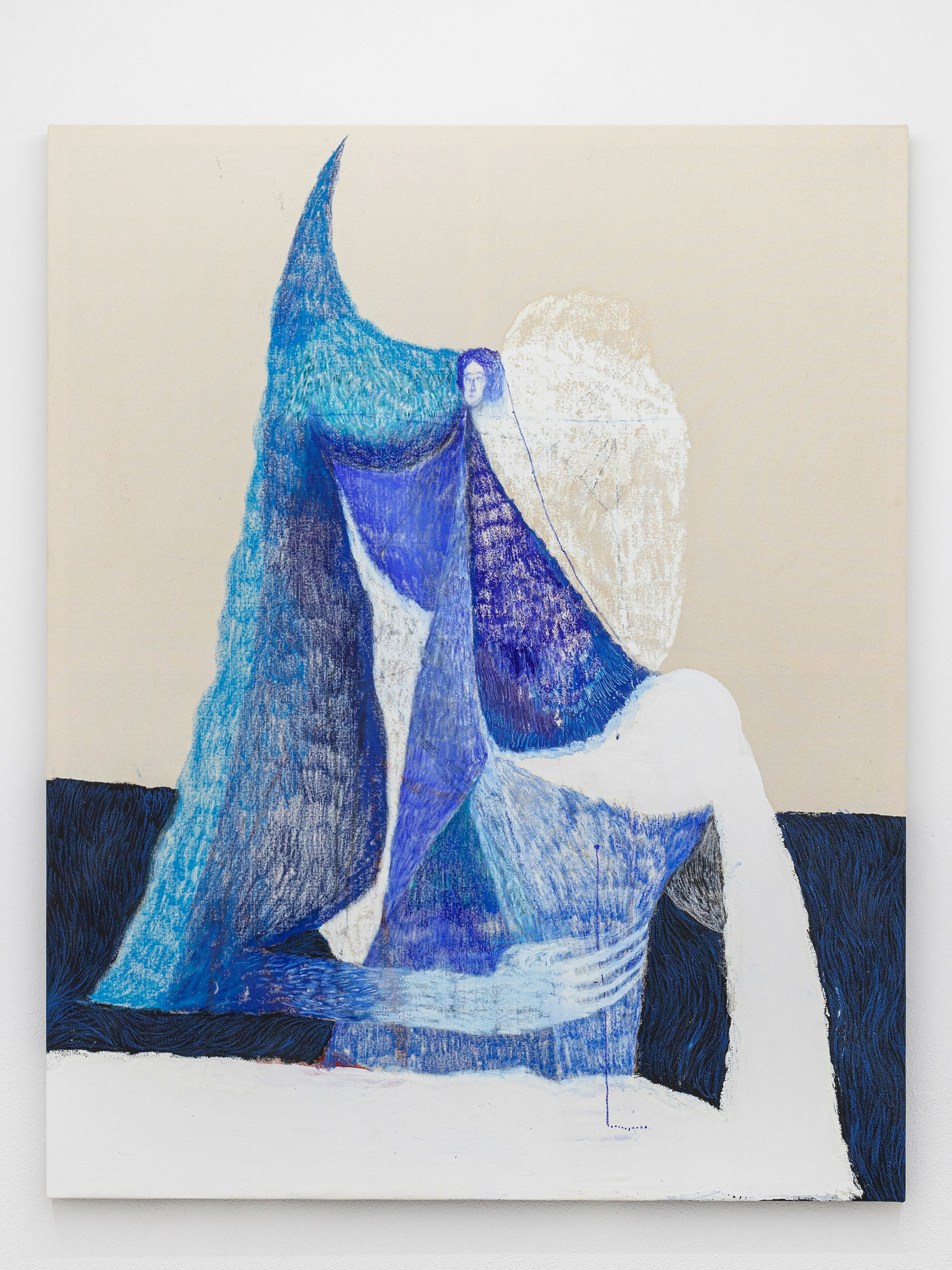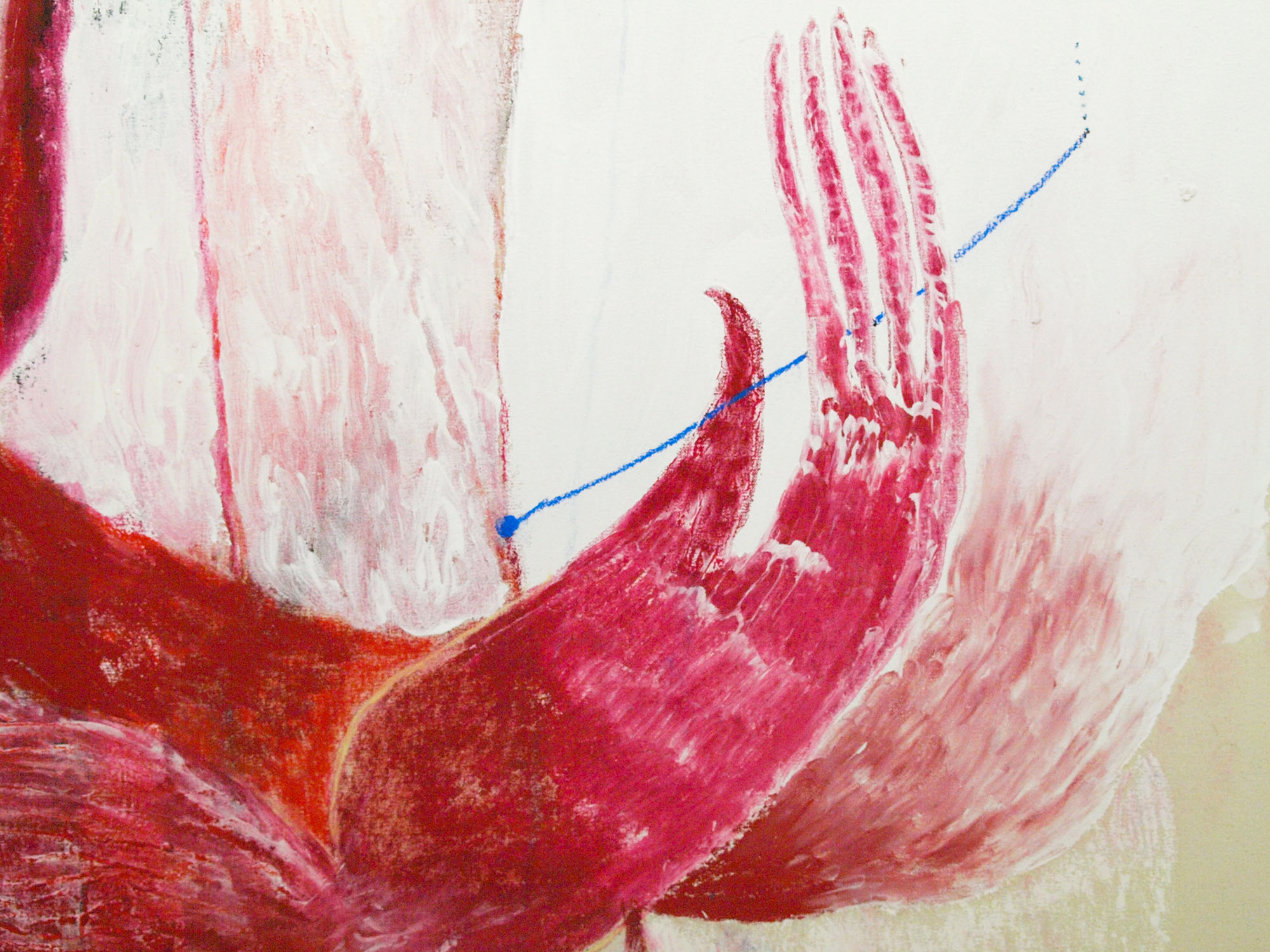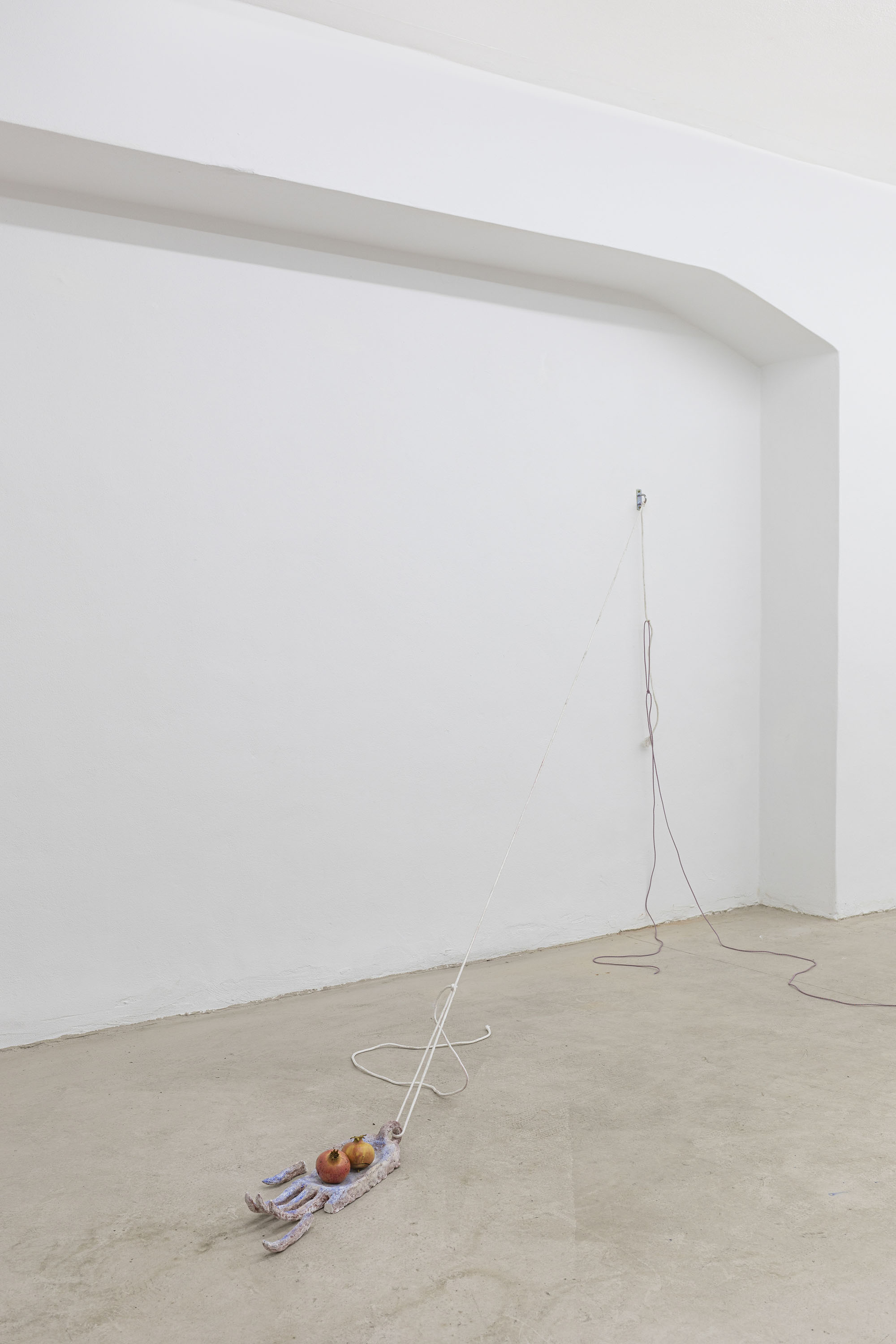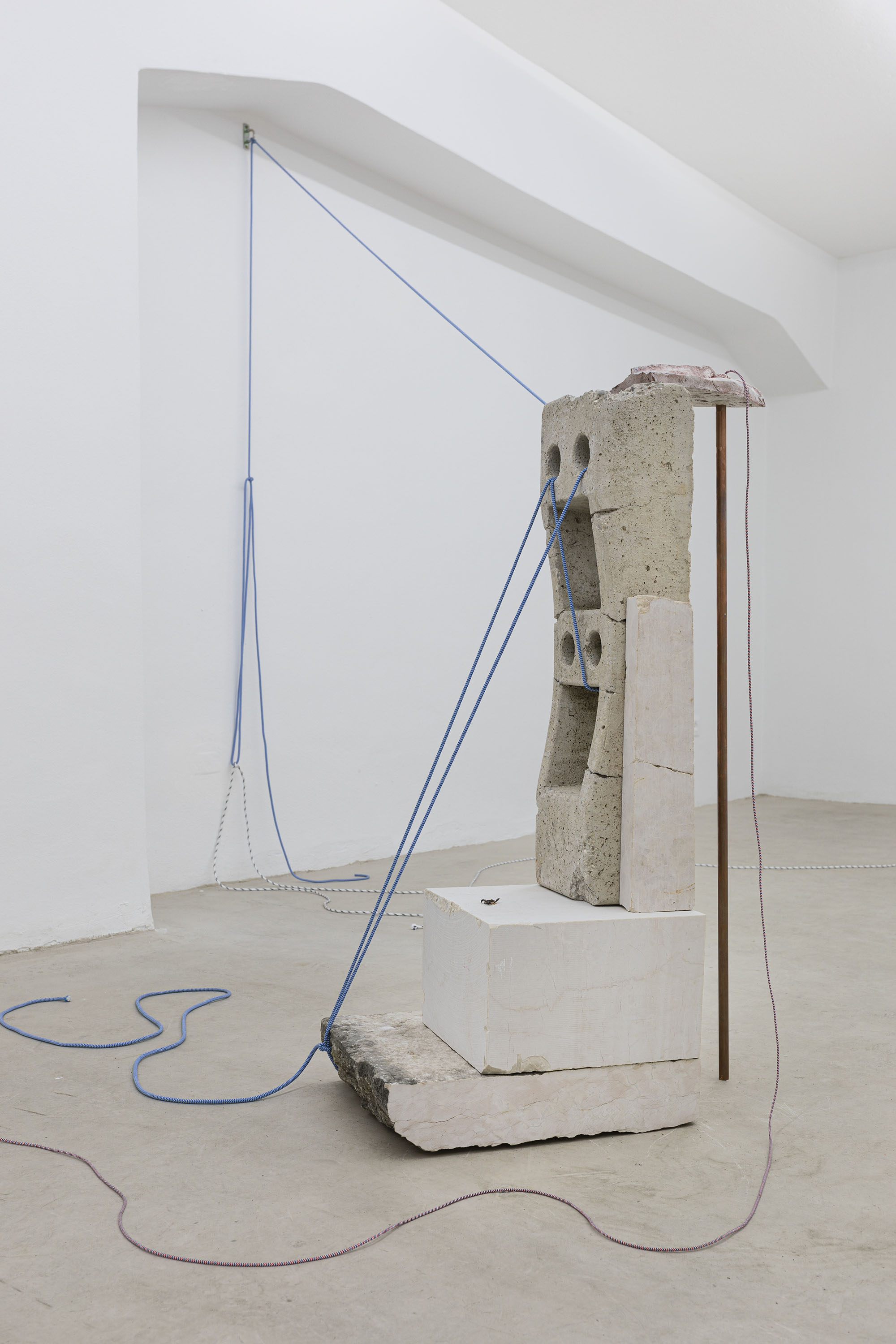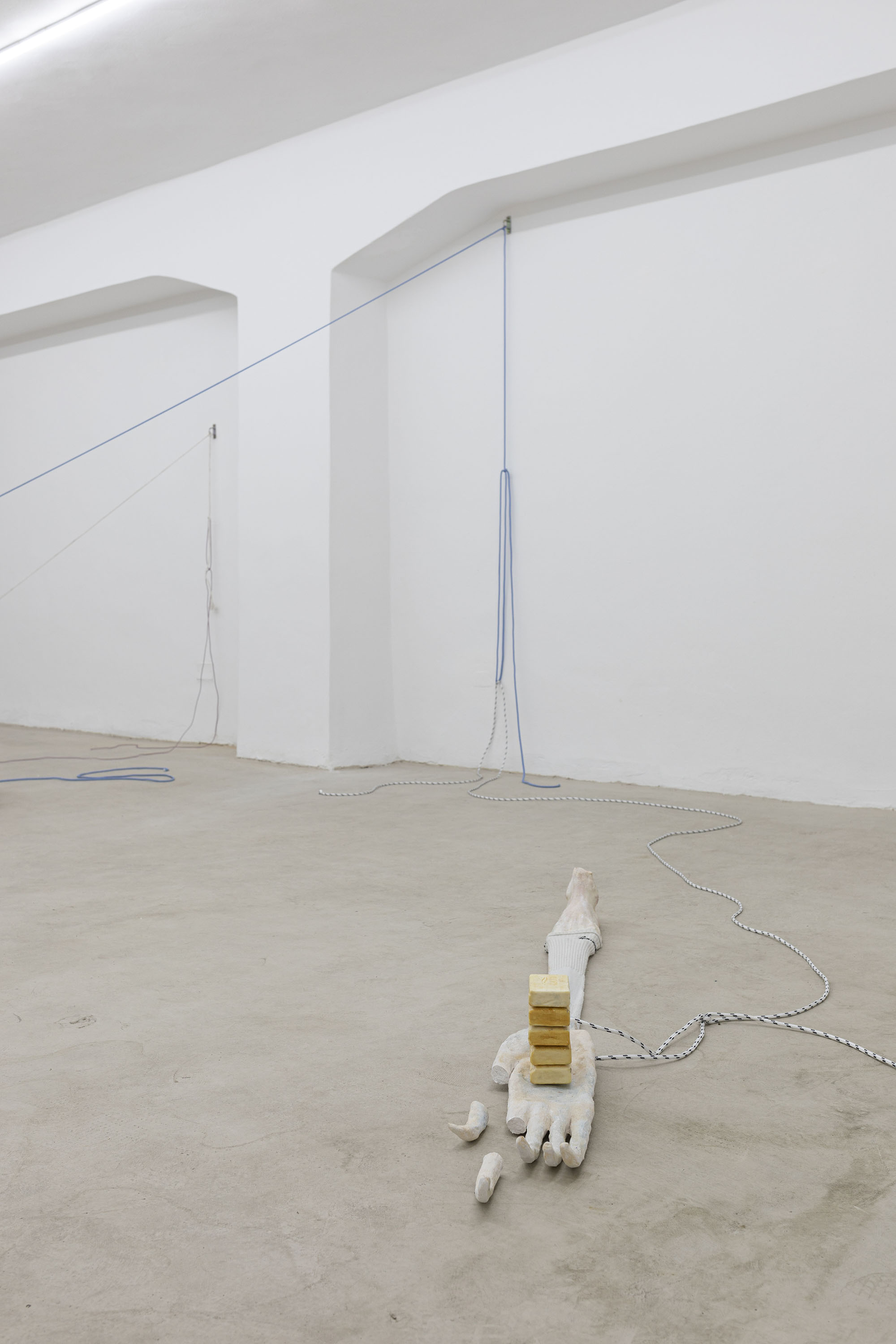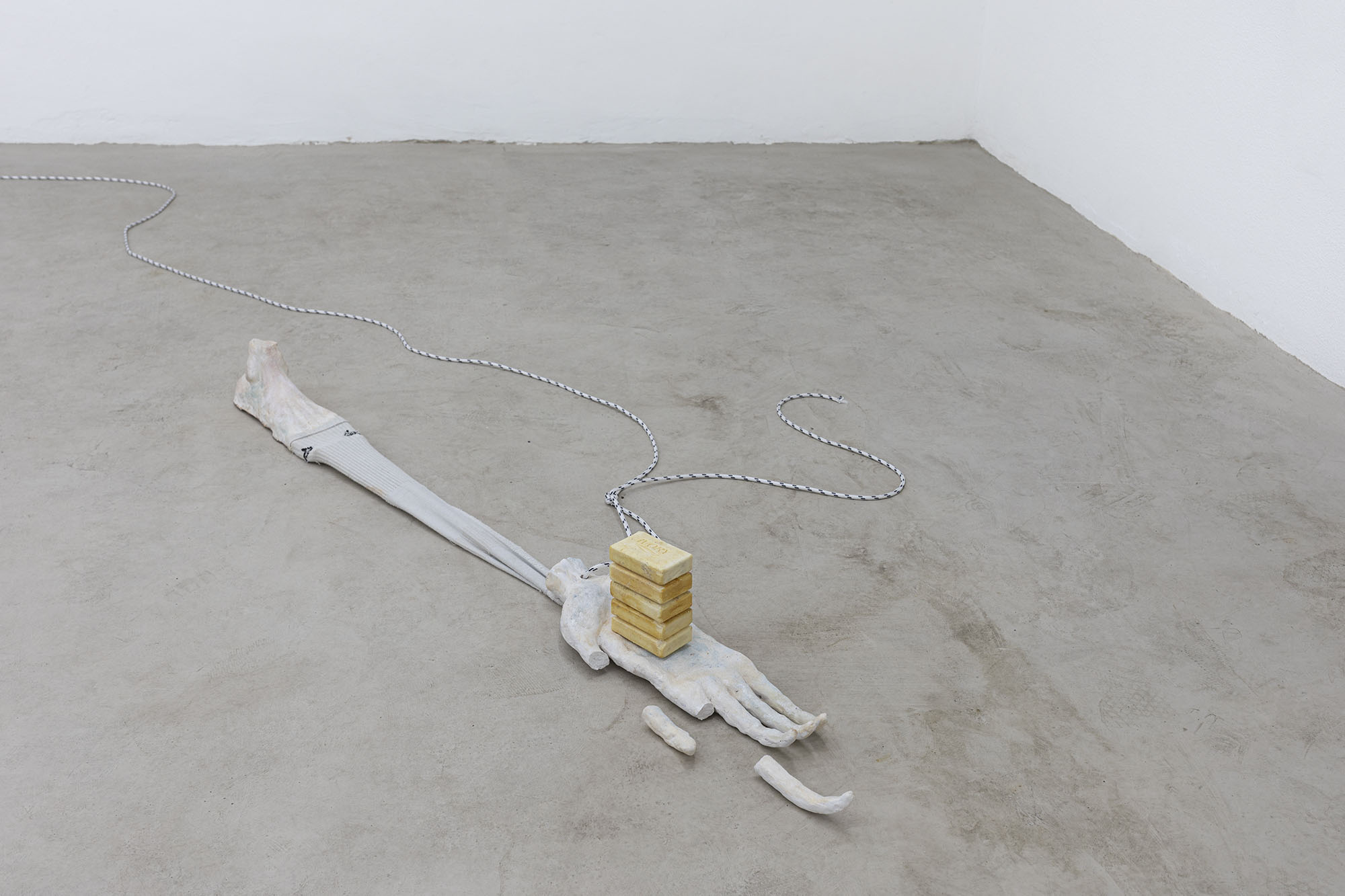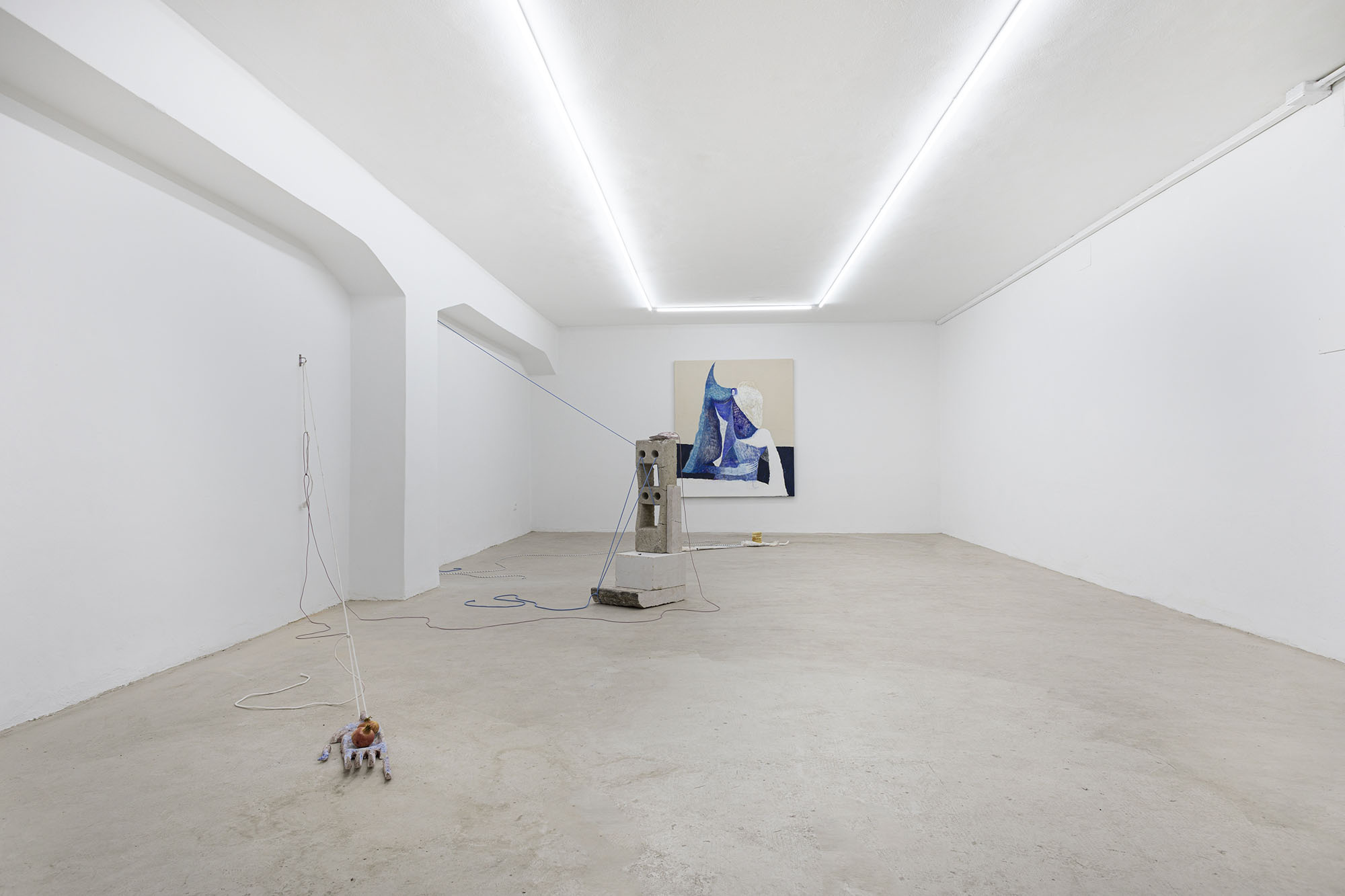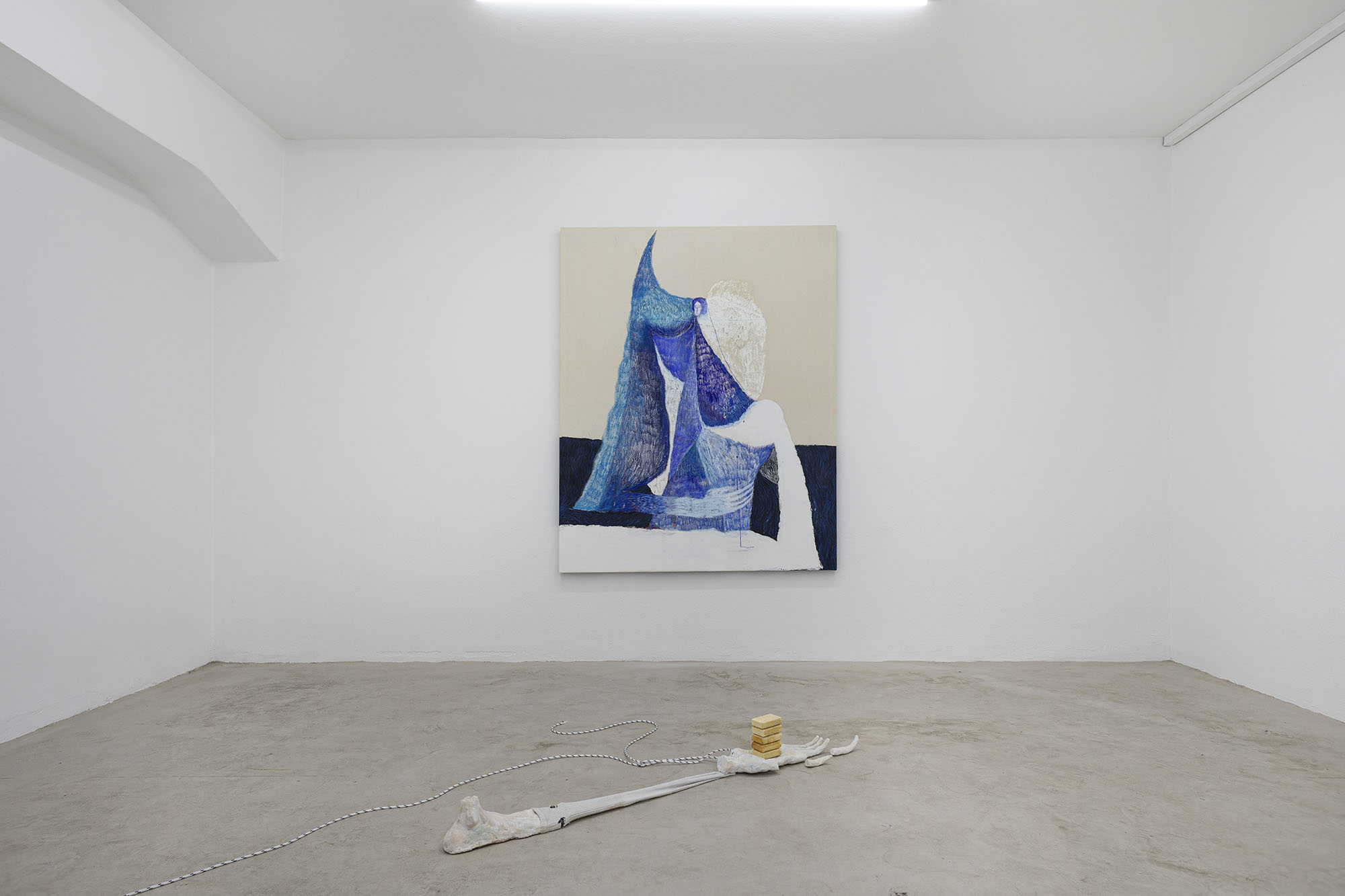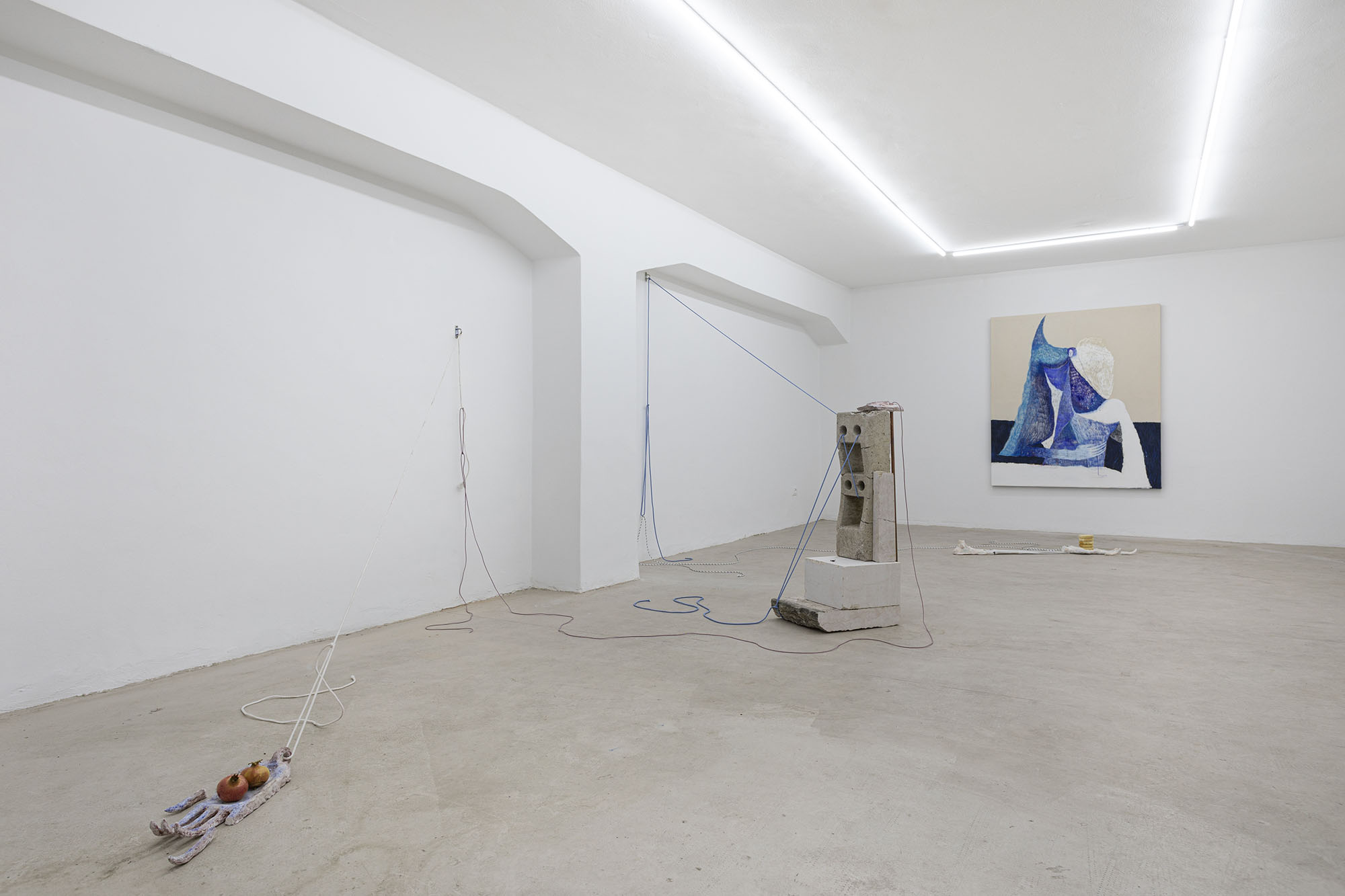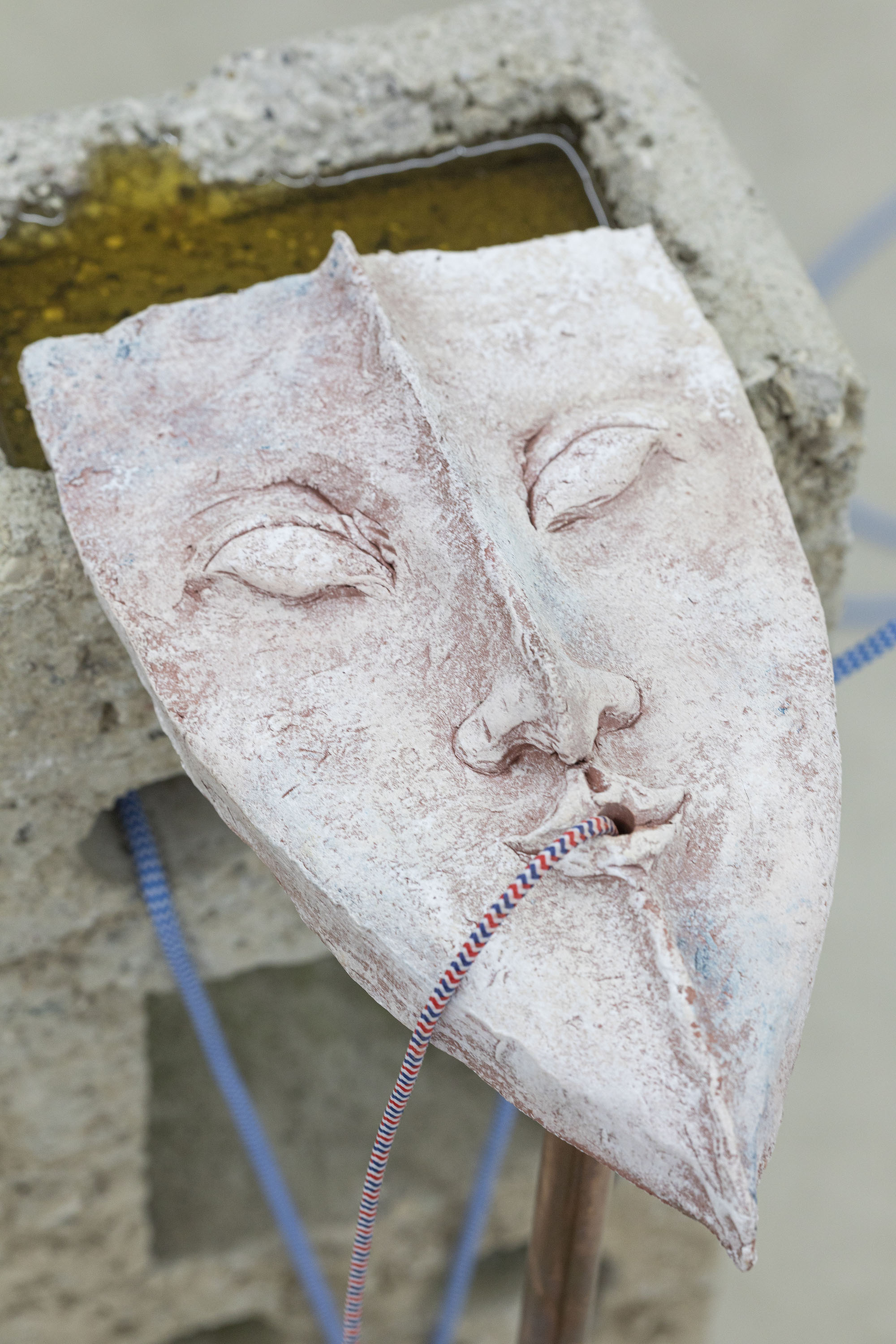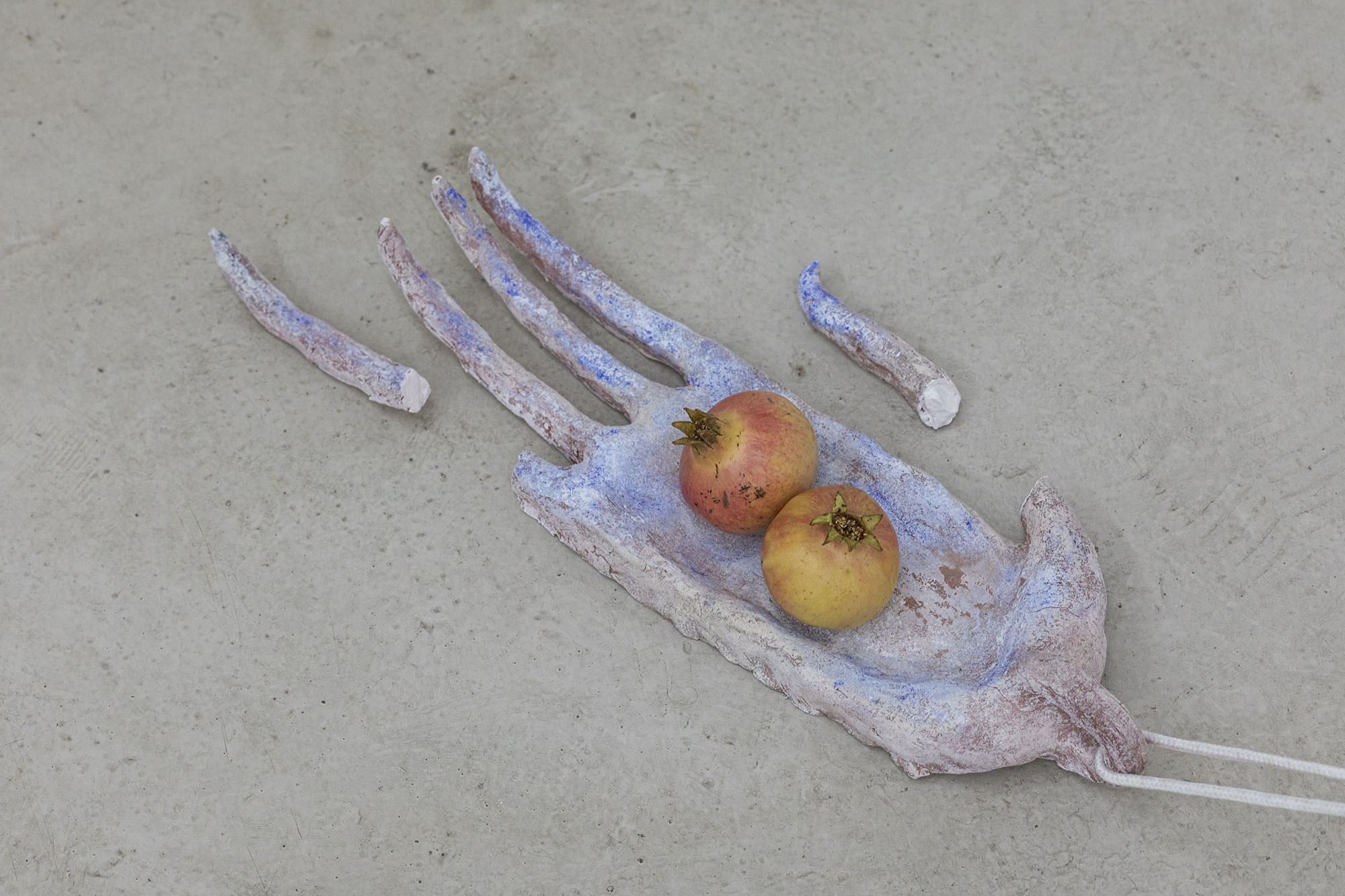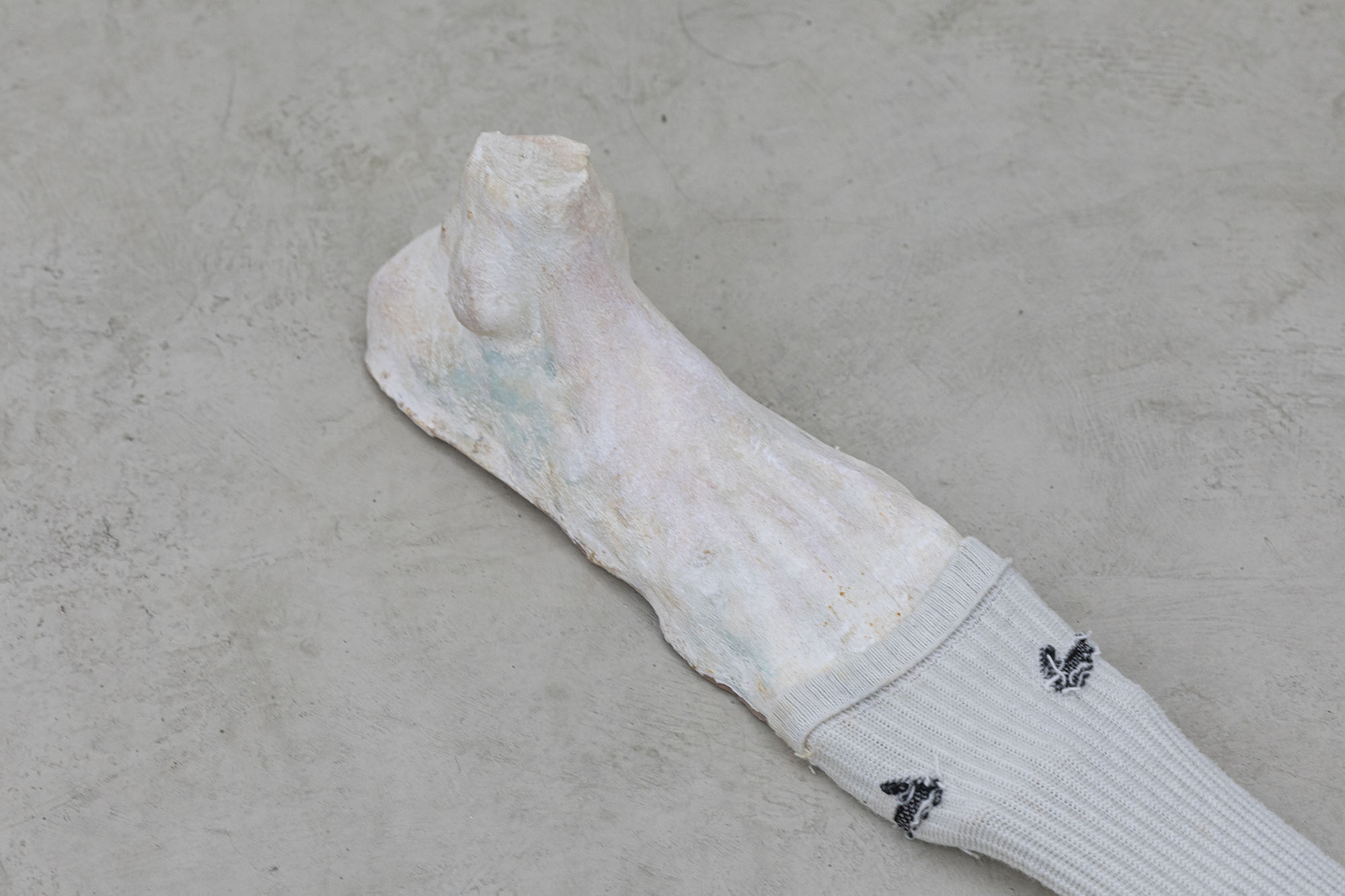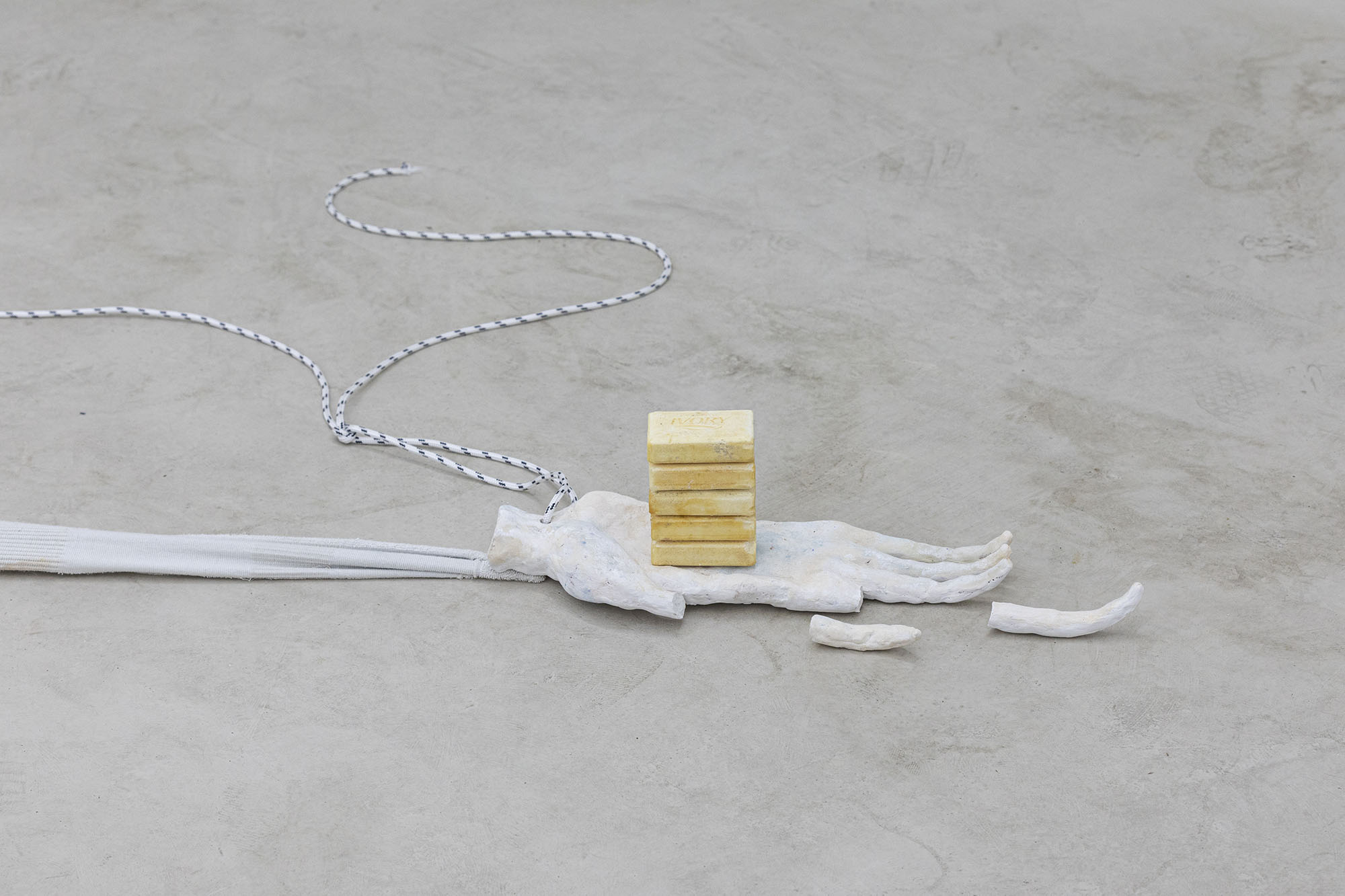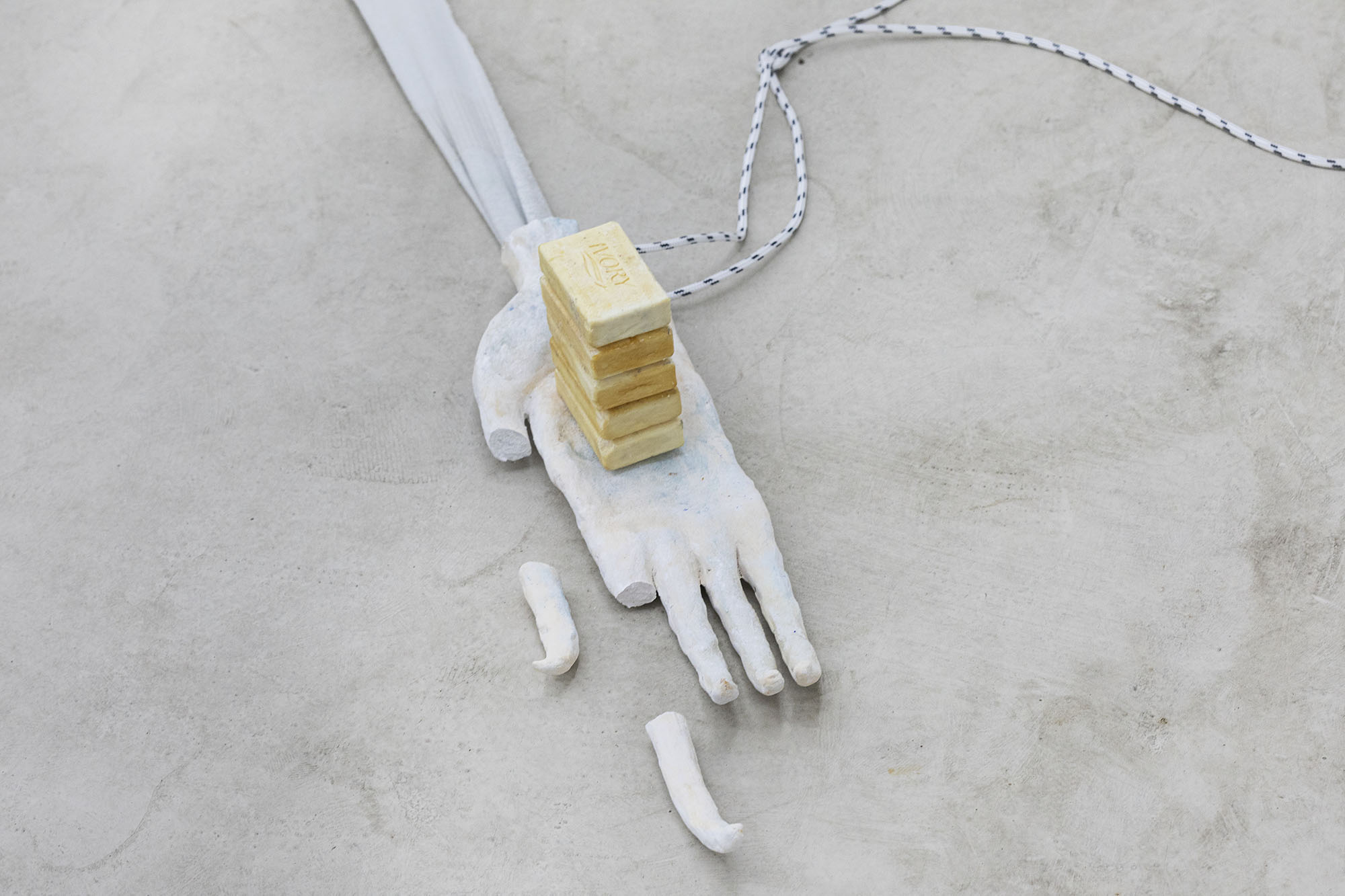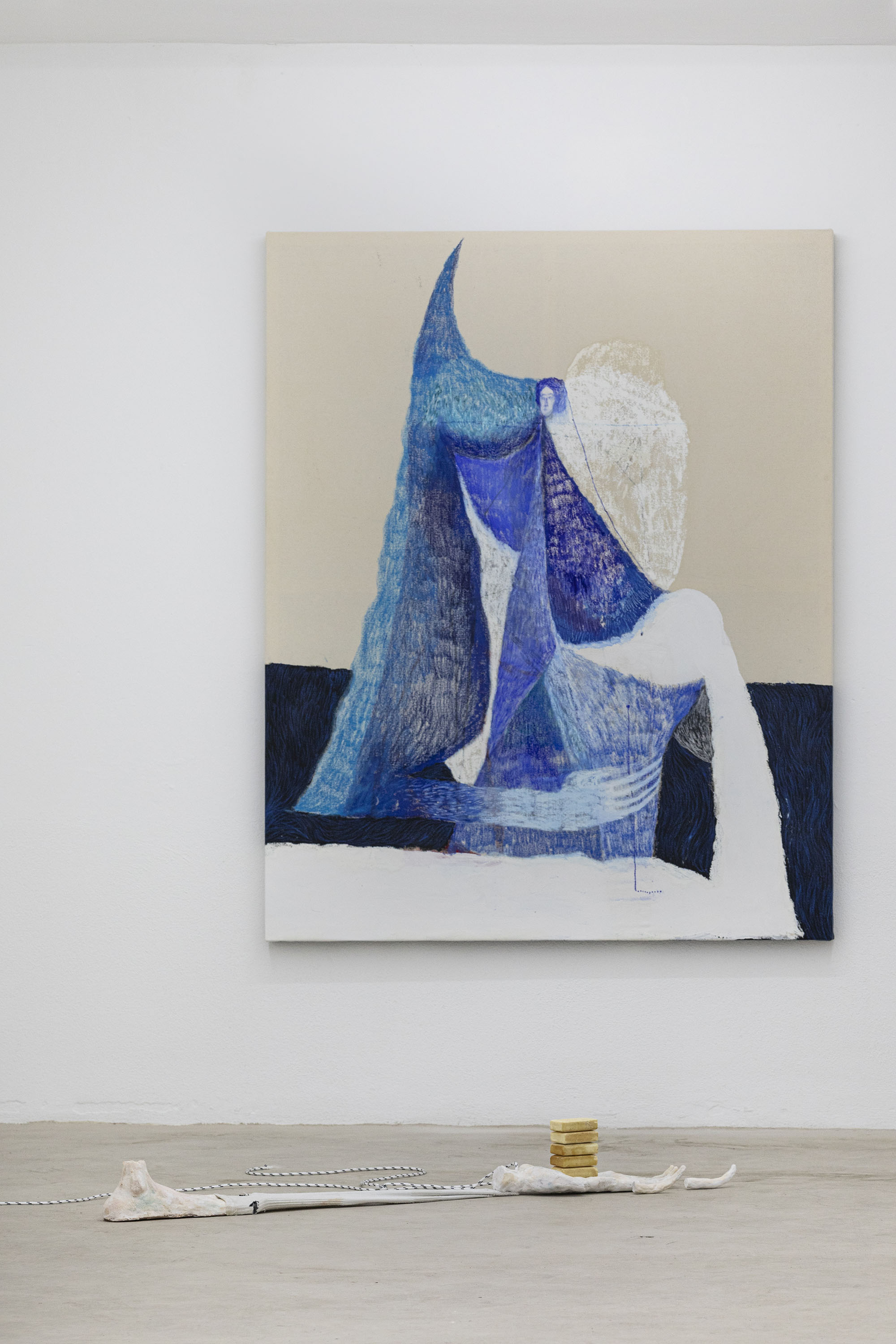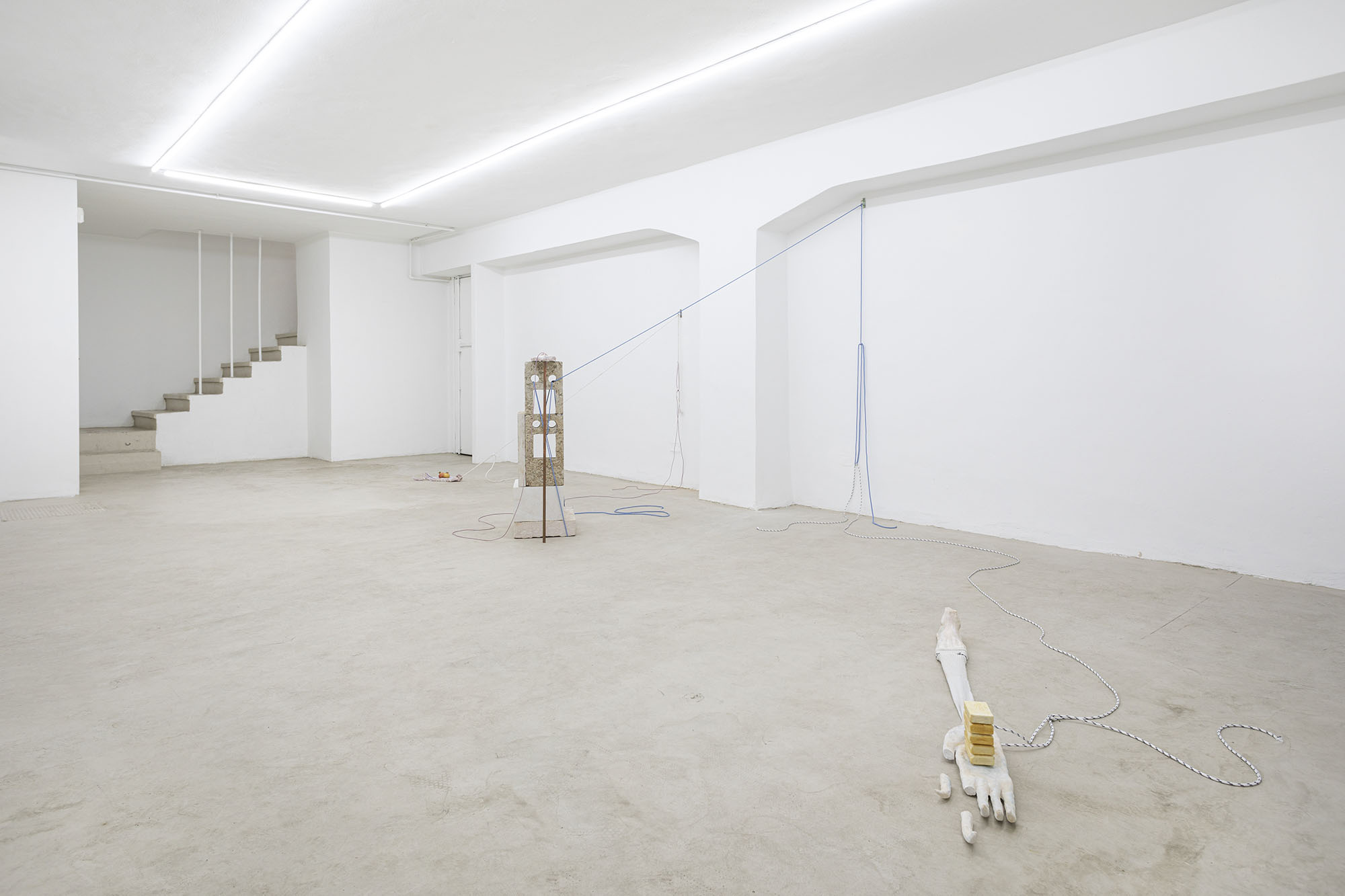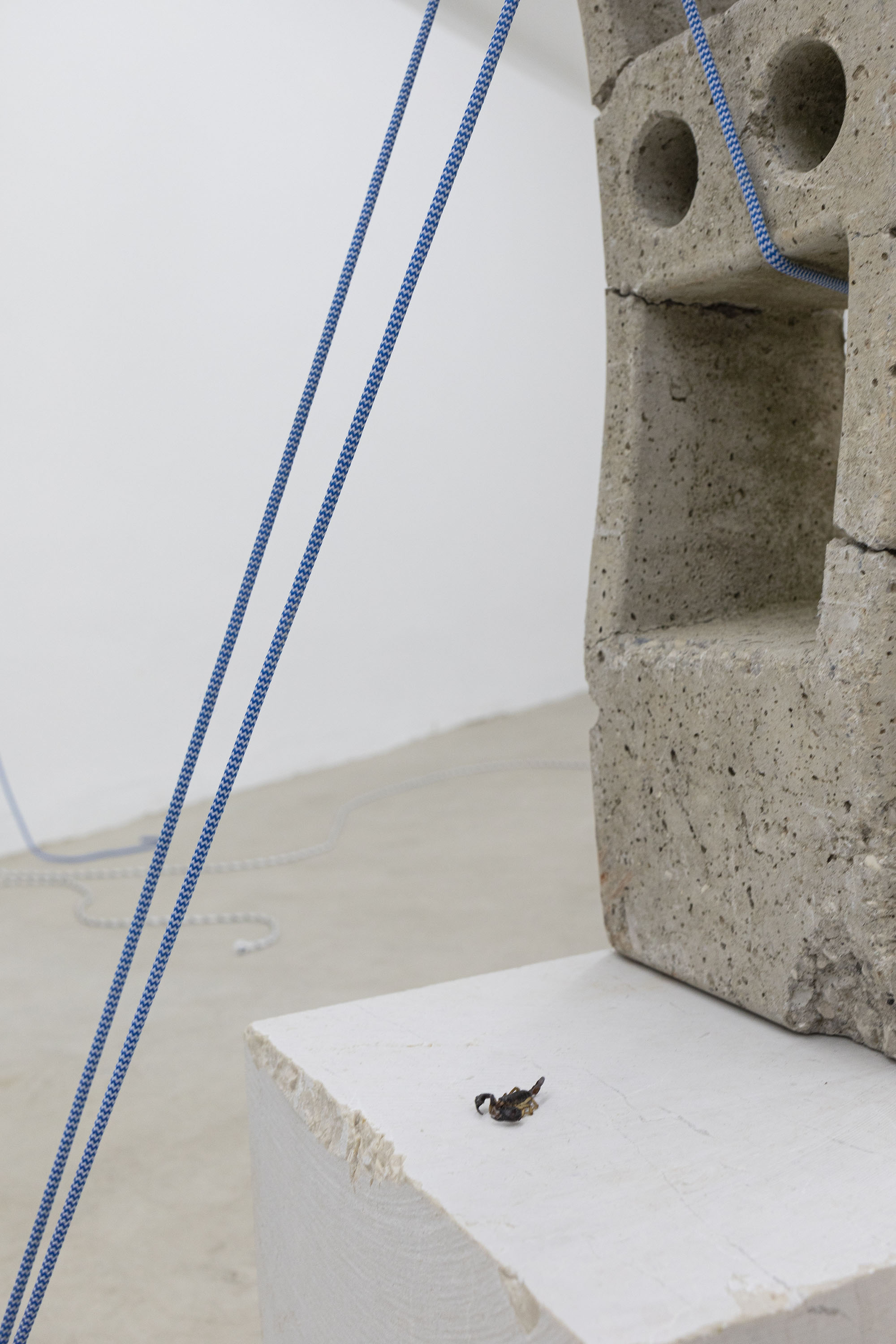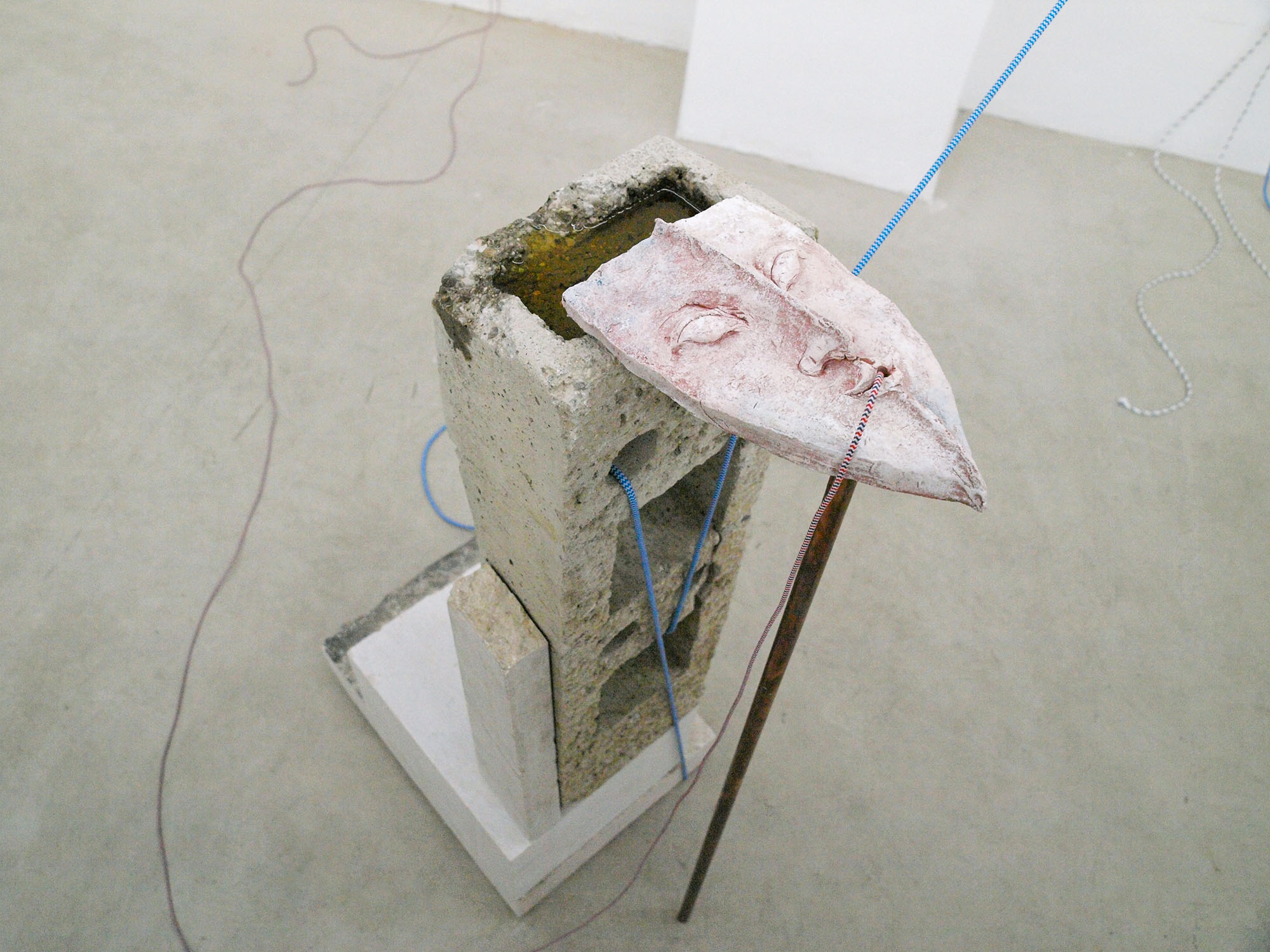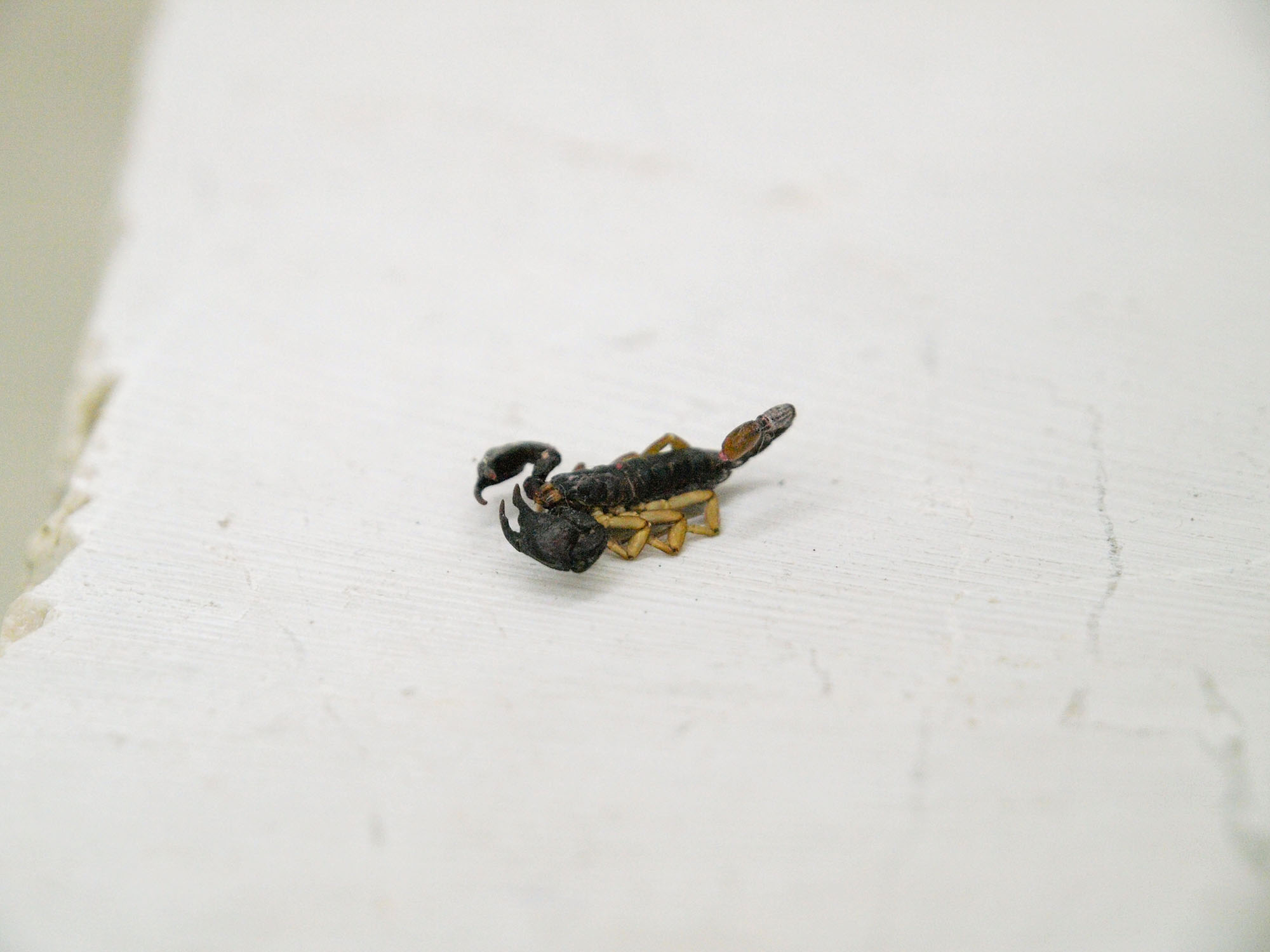Blue Pruno Blue
Édouard Nardon
Curated by Domenico de Chirico
September 12 - November 3, 2019
The Address Gallery
Via Trieste 39/A
25123 Brescia, Italy
Allor porsi la mano un poco avante
e colsi un ramicel da un gran pruno;
e ‘l tronco suo gridò: “Perche mi schiante?”
Dante Alighieri - Divine Comedy (14th Century) Inferno, Thirteenth Canto
Édouard Nardon’s work is solidified through a process of ennobling personal allegories on the border between the ancestral and the imaginary. Through sculptures and paintings, he loads the matter with emotional meaning and apparent carelessness and, by allowing his work to absorb his emotional experiences, frees himself from them.
All his artistic practice is strongly influenced by ideas of interpretation and subjectivity. His modus operandi often commences with sketches based on figurative elements of the external world, which could be interpreted as unresolved forms of abstraction. The elements obtained thus far act as a support for a second phase, that of creating signs on several levels.
Nardon paints on raw canvas, which means that he cannot erase any line or gestural trait. This creates a certain tension in the creative act: a layer imposes onto another, the stratification generates an intricate complex of forms that are connected to each other in an infinite dialectic between conflict and harmony.
Nardon aims to detach himself as much as possible in elaborating his paintings, moving away from the logical and reaching a state in which the unconscious gesture plays a role in shaping the form. He is strongly influenced by the classical representation of the human body and how emotion can be expressed through posture in both painting and sculpture.
His ideas suggest a complex use of materials: being extremely fascinated by the integration between industrial and organic elements, Nardon carefully chooses all those found objects that are intrinsically three-dimensional, ranging from eBay to large landfills, from antique shops to building materials, not forgetting the inevitable city streets. Among all, soap, for example, requires a precise chemical formulation that leaves room for a veiled symbolism that materially whispers an alchemic proximity to Pruno: the prison wine. Suddenly the allegory becomes a ritual, a visual potion in its intertwining of layers.
It is through such a disjointed unity that Nardon strongly wants his works to anticipate the act of metaphorical interpretation because everything is already untangled according to a practice of linear elevation similar to the fermentation that leads to intoxicating visions.
Domenico de Chirico, 2019
-
Édouard Nardon is a french artist born in 1978, he lives and works in New York City. Nardon has participated in solo and group exhibitions internationally, including Lily Robert (Paris), Magic 175 (New York), and Suprainfinit Gallery (Bucharest).
Compressed fruit cubes in a ziploc. Palms,
knees,
feet,
shoulders,
feet,
knees,
palms.
Indigo veins dancing across the front shield.
Giant sport shoes covered with crushed chalk and laced up too tight. They look like two parallel altostratus full of rain.
50 chin-ups,
72 arrows,
125 sugar cubes, it is almost ripe.
A confused ghost with a light shadow floats across the low ceiling, and that’s ok.
I wrap him in a warm white towel that smells like bleach, and hide it in the hollow porcelain chest. A 7000 oz Styrofoam cup held upside down by a pale long hand.
Long lobes.
Long nose.
Long tears on long toes.
Three sips and I see your endless neck,
But I place your pretty face in the bottom left corner of my wingshaped amber lens.
And it seems so small now, today more than yesterday,
and even more than the day before yesterday.
A red clay soap-block in a tennis sock.
A glass eye on the porous floor of a small empty room where dusk is undulating.
Body weight. Broken smiles held with glue,
A strange color:
blue pruno blue.
É.N.

